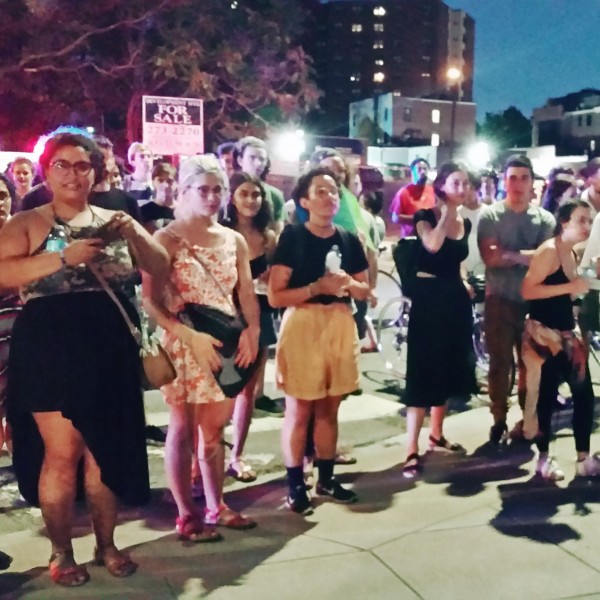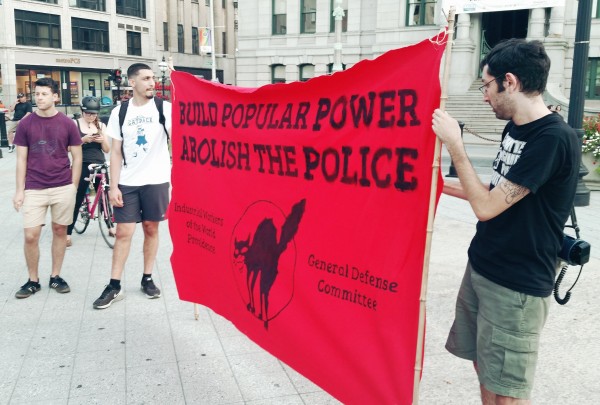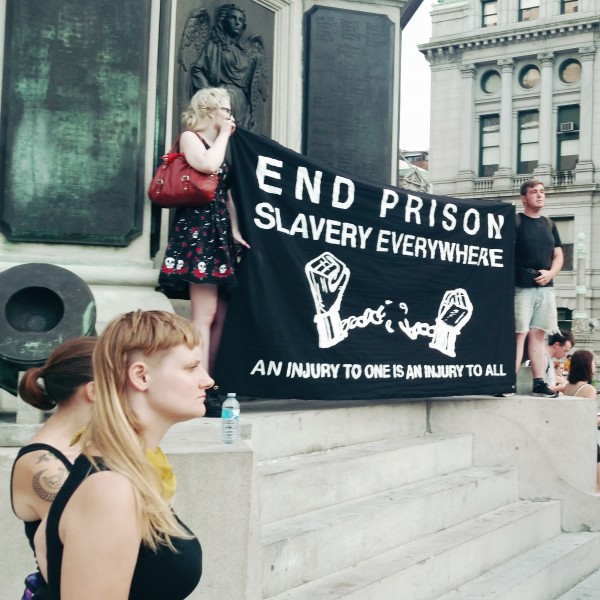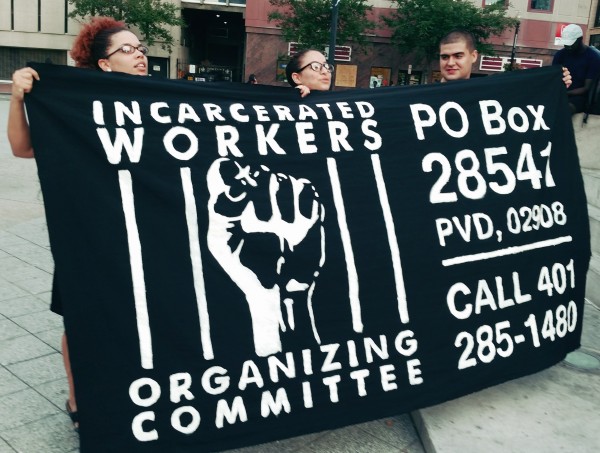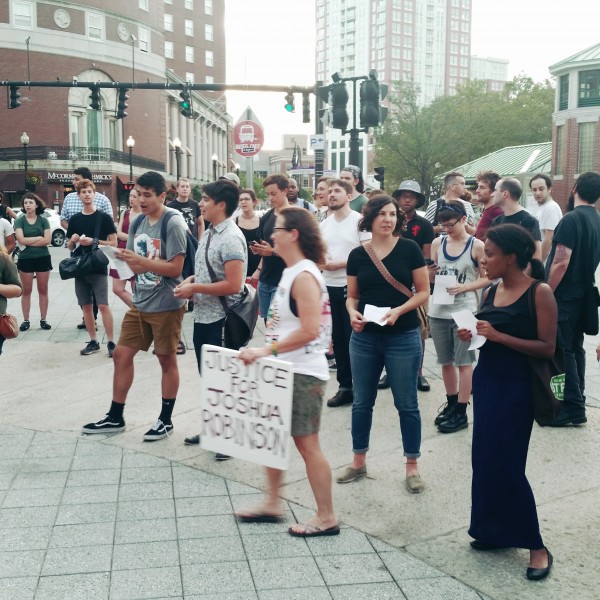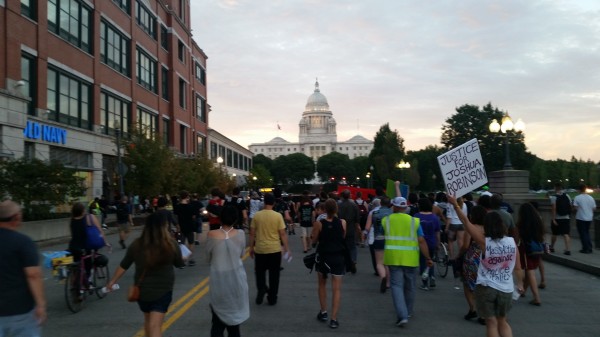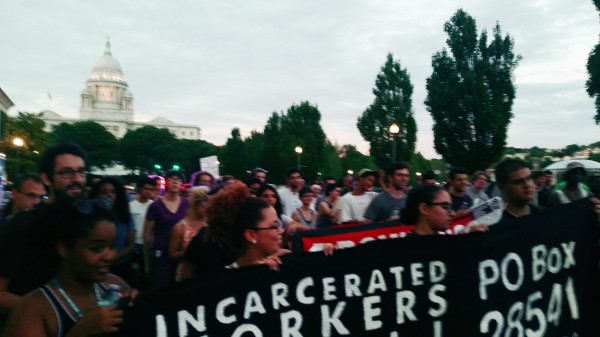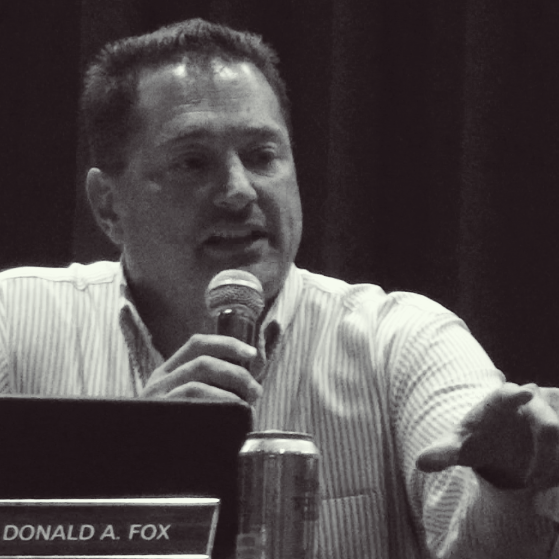
“So fucking recall me,” said Burrillville Town Councillor Donald Fox, then, turning to the Burrillville residents who had stopped to watch the argument, continued, “and that’s going for all you guys listening. Recall me. It’s okay.”
After Wednesday night’s record breaking Burrillville Town Council meeting, which lasted until twenty minutes past midnight and resolved nothing regarding the tax treaty between the town and Invenergy, the company that wants to bring a $700 fracked gas and diesel oil burning power plant to the town, Burrillville Town Councillor Donald Fox was heard having a loud conversation with candidate for town council Ray Trinque, who also serves on the town’s sewer commission.
The discussion was in the parking lot of the Burrillville High School, after the town council finished its business. Several people were in the parking lot watching and listening to the conversation, including Jeremy Bailey, a Burrillville resident and a Democratic candidate for town council.
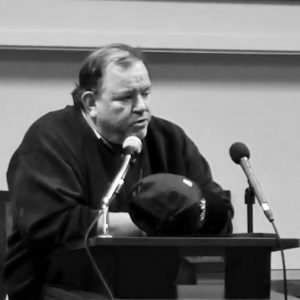
The conversation between Fox and Trinque is “about the sewer commission’s role with Invenergy’s application,” but it quickly dovetailed into events that happened earlier in the year, when Burrillville residents were considering initiating a recall petition against members of the town council. Trinque claims to have interceded on behalf of Fox.
Here’s the transcript, as best as I could hear:
“So why are you trying to make people think that we can stop it, that if the sewers are…” says Fox in the video.
“I didn’t say that…” interrupts Trinque.
“But that’s what everyone in that fucking theater thinks,” exclaims Fox, gesturing towards the high school auditorium.
“I asked a question,” counters Trinque, “But this is why I’ve avoided these town council meetings…”
“Well you should if you’re going to bring up shit like that because you know we can’t do anything about it!”
“Yeah but the whole point is, the first one I get to, I mean [garbled] because I’m not loyal enough…”
“I don’t give a shit!” says Fox.
[crosstalk]
“I’m as loyal as they get!” says Trinque.
“I don’t care about that at all,” says Fox.
[crosstalk]
“Ray, that has nothing to do with this process.”
“This has to do with this process,” says Trinque, “because when these guys were going to recall all of you and wanted you number one…”
“Fucking recall me!” exclaims Fox, “It’s okay!”
“Let me tell you, I talked them into not doing it…” Trinque tries to say.
“It’s okay!” exclaims Fox again, “You know me…”
“Because it would have been ultimately unsuccessful and it would have…”
“You know I don’t care,” says Fox, exasperated, “I’ve got better things to do.”
“I understand that,” says Trinque.
“So fucking recall me,” says Fox, then, turning to the Burrillville residents who had stopped to watch the argument, “and that’s going for all you guys listening. Recall me. It’s okay.”
It’s at this point in the video that Fox notices Bailey recording the conversation.
“You’re going to film it? You’re filming it?” Fox asks.
“Yup,” says Bailey.
“You are such an unbelievable,” says Fox.
“Listen,” says Fox, turning his attention back to Trinque, “It doesn’t matter. You know that we can do nothing about the sewer commission… We’re doing what’s right and you know that. We’re doing everything by the book and to throw stuff out like that is…”
At this point the pair are interrupted by a person in a car.
“Can I help out?” asks the motorist.
“No, this is two Republicans going at it,” says Fox.
“You know,” says Trinque, “Good Republican discourse.”
“We got the Hollywood guy over here filming,” says Fox, gesturing towards Bailey.
In an email, Fox wrote a lengthy reply to the video, which I am including in it’s entirety below:
Ray and I were arguing about the sewer commission’s role with Invenergy’s application. I took exception to him making public comments about the sewer commission’s capacity when he knows very well that the Town Council cannot control what the Sewer Commission does. Plus, if the power plant company gets their DEM permitting and all is in order according to State regulations, the Sewer Commission cannot stop them from using the system. But to bring that up in that manner, when the residents were there to talk about the proposed tax treaty agreements, can lead people to incorrectly believe that the TC can do something about it. We cannot. I repeat that we cannot stop Invenergy from using the sewer plant for discharge.
“I have known Ray Trinque for years and appreciate the service he has done for this town through is efforts on the School Committee. We have often talked about the town, the role of the TC, the role of the School Committee. It was this Council that appointed Ray to the Sewer Commission. We have attended many events together and I am proud to call him my friend for the wonderful work that he does with the veterans groups. So we feel very easy talking about any issue, whether we agree or not. Ray mentioned a recall effort and I told him that I do not care if I am recalled for doing what is right. I have never done public service for anything but that – public service. I will always do what is correct for the Town, not what is correct for politics. I hate how the power plant issue has been used as a political tool by some in town. And I am proud of the efforts made by this Town Council to stay away from that and not make it a political issue. If Council members wanted to use this as a political tool that effort would have been made 2 years ago when Rep. Cale Keable brought the plant to town.
“I have heard about the recall rumors for months and my stance has not changed or been influenced by that. Let me give you some background on myself. I never did military service when I was younger and am so very proud of the men and women that I know in my life who have done such service. One of my best friends has done multiple tours overseas in Iraq and Afghanistan, in horrific conditions. I feel that serving on boards, commission and Council has been my small way of doing something worthwhile for the greater good of my community. While it can in no way be compared to the sacrifices that our armed forces make, I take a page from my friend’s book – I do not back down to pressure and will always do what is right. Recall rumors do not affect me and I do not care about them. That is political garbage and it will not sway me on how I conduct myself as a Council member.
“Let me repeat that, I do not care about such things. If the constituents of this town feel that I should be recalled for executing, to the best of my abilities, the responsibilities of a Council Member then that is their legal right. My voting record is clear. My actions are clear. My stances are clear. I believe in Burrillville. I want to protect it as much as anyone. I am raising my 3 children and family here. I invested $1.1 million of my own money in a new building in Burrillville, when there were cheaper options to build or lease elsewhere in RI and in MA.. I put my money where my mouth is because I believe in this town.
“So when someone like Jeremy Bailey wants to film me and Ray Trinque having a passionate argument about what is good for Burrillville, I do not care. As I said, Ray and I are friends who have both long served the town, supported the town and care about this town. According to this week’s Bargain Buyer, Mr. Bailey is a one topic candidate and does not deserve votes in this community due to potential conflict of interest that he has. The ad questions how he can vote on power plant related issues when he is listed on the abutter list in the PVGA. I have to agree with whoever placed that ad. Mr. Bailey not only has his facts wrong, but he has been a pawn of the Democratic Town Committee in its effort to make the power plant a political issue. Mr. Bailey’s actions as a sneaky filmmaker do not concern me. What concerns me is doing what is right for this town. What concerns me is being part of a Council that has done things the right way since the plant came to town in December of 2014. What concerns me is that our Council has worked and continues to work for the good of this town and has put aside political aspirations and goals while doing work on the power plant issue. No one can accuse this Council of not doing what if feels is best for the town as a whole.
“You in your blog very early on questioned this Council for its neutrality so that our boards’ advisory opinions would not be tainted. Turned out that we did the right thing for the town as a whole. Yet we were attacked repeatedly by you and others for making this difficult stance. If people want to recall me for taking such actions, then recall me. No one will ever accuse me or anyone on this very sound and professional Council of doing anything but what is best for the town. If you are going to write about this, please include my complete reply herein.”

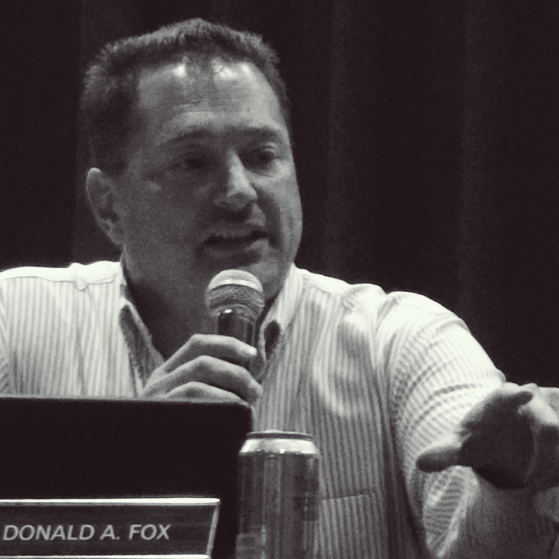


 In order to fund their ideas, the CIW asked corporation to pay an extra one cent per pound of produce purchased. This money would allow the workers to push for higher wages and establish a code of conduct that contained zero tolerance for the worst abuses. This allowed workers to demand respect, and in fact they mandated that the worker’s voices be heard during the implementation of these changes.
In order to fund their ideas, the CIW asked corporation to pay an extra one cent per pound of produce purchased. This money would allow the workers to push for higher wages and establish a code of conduct that contained zero tolerance for the worst abuses. This allowed workers to demand respect, and in fact they mandated that the worker’s voices be heard during the implementation of these changes. Today 14 corporations are signed on, but CIW is looking to expand this program of Worker Driven Social Responsibility. They have expanded beyond Florida and into other states such as Georgia and North and South Carolina. They have expanded beyond tomatoes and into other crops such as strawberries and bell peppers. They want more corporations to sign on.
Today 14 corporations are signed on, but CIW is looking to expand this program of Worker Driven Social Responsibility. They have expanded beyond Florida and into other states such as Georgia and North and South Carolina. They have expanded beyond tomatoes and into other crops such as strawberries and bell peppers. They want more corporations to sign on.


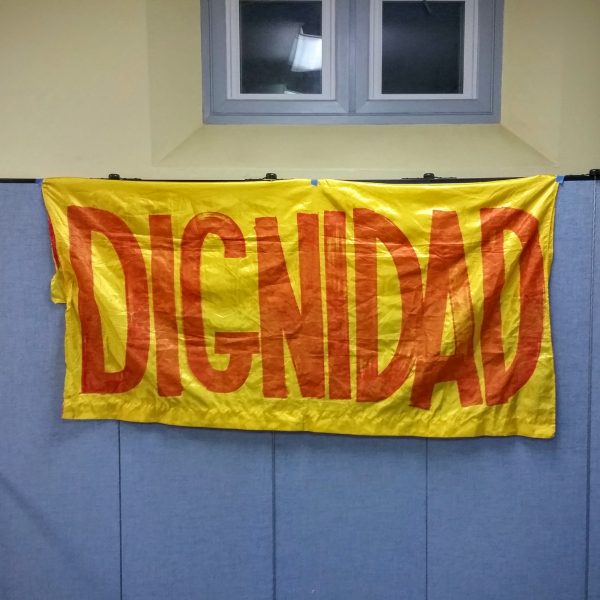
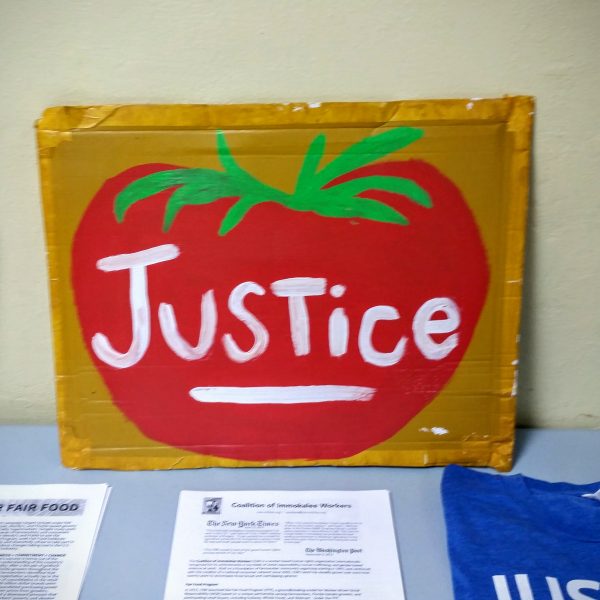
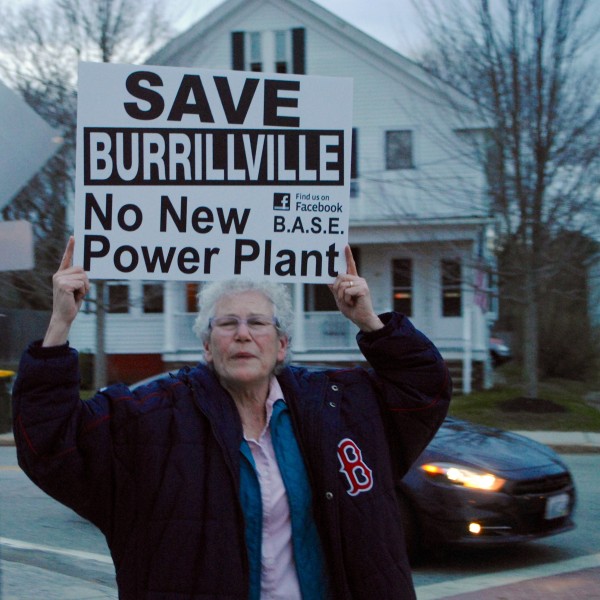

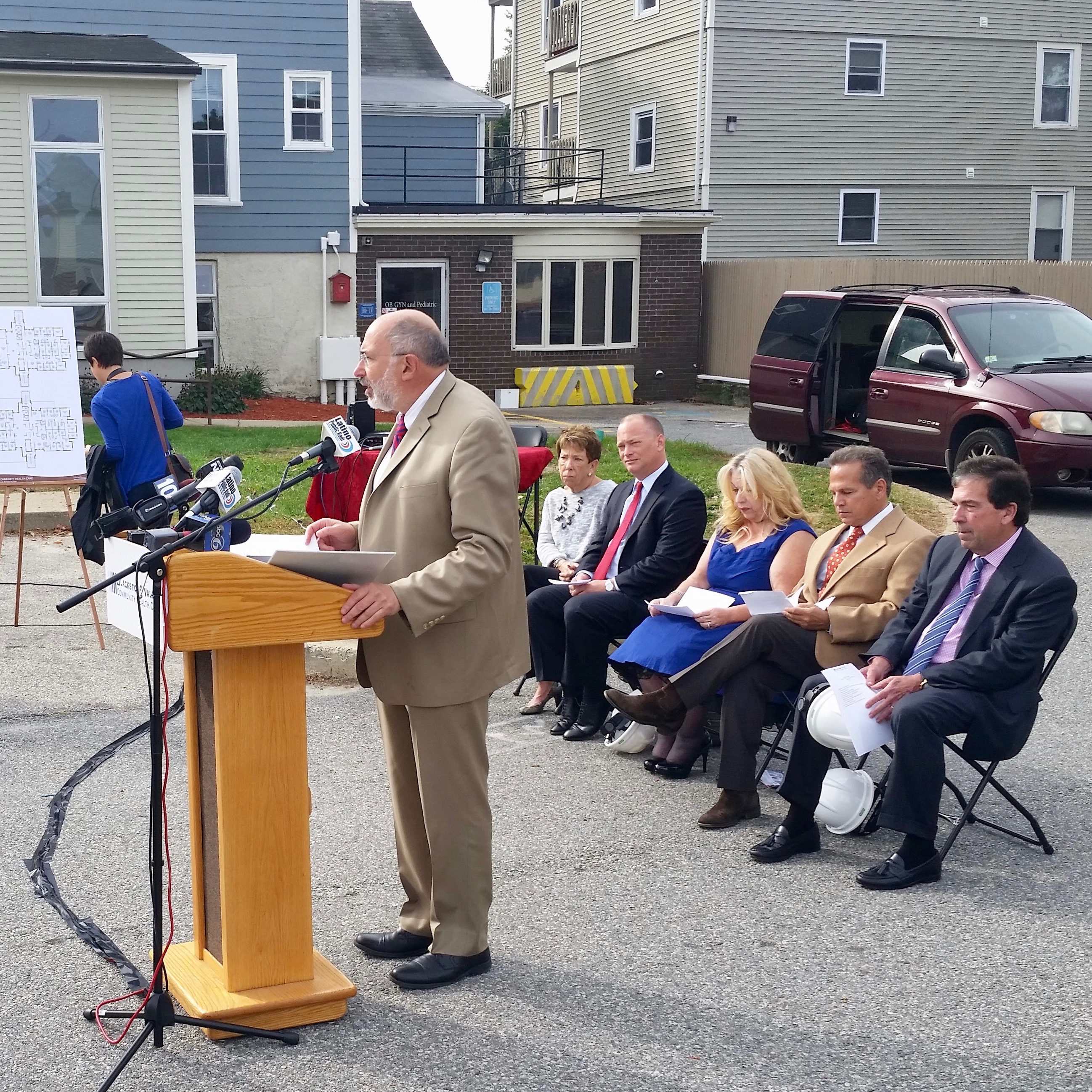
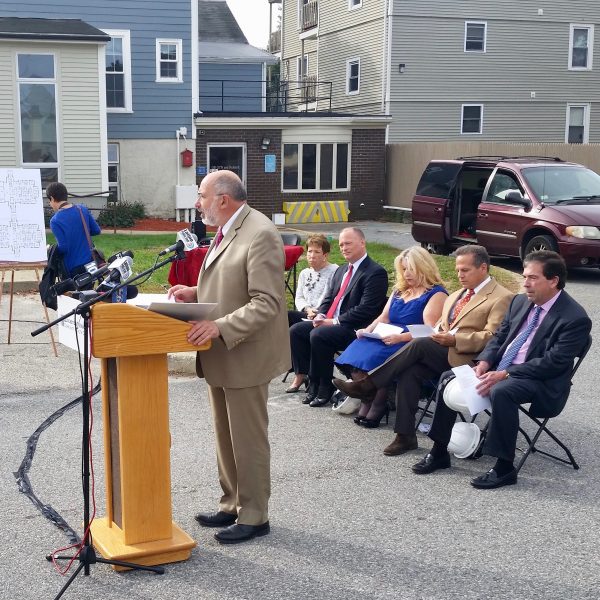


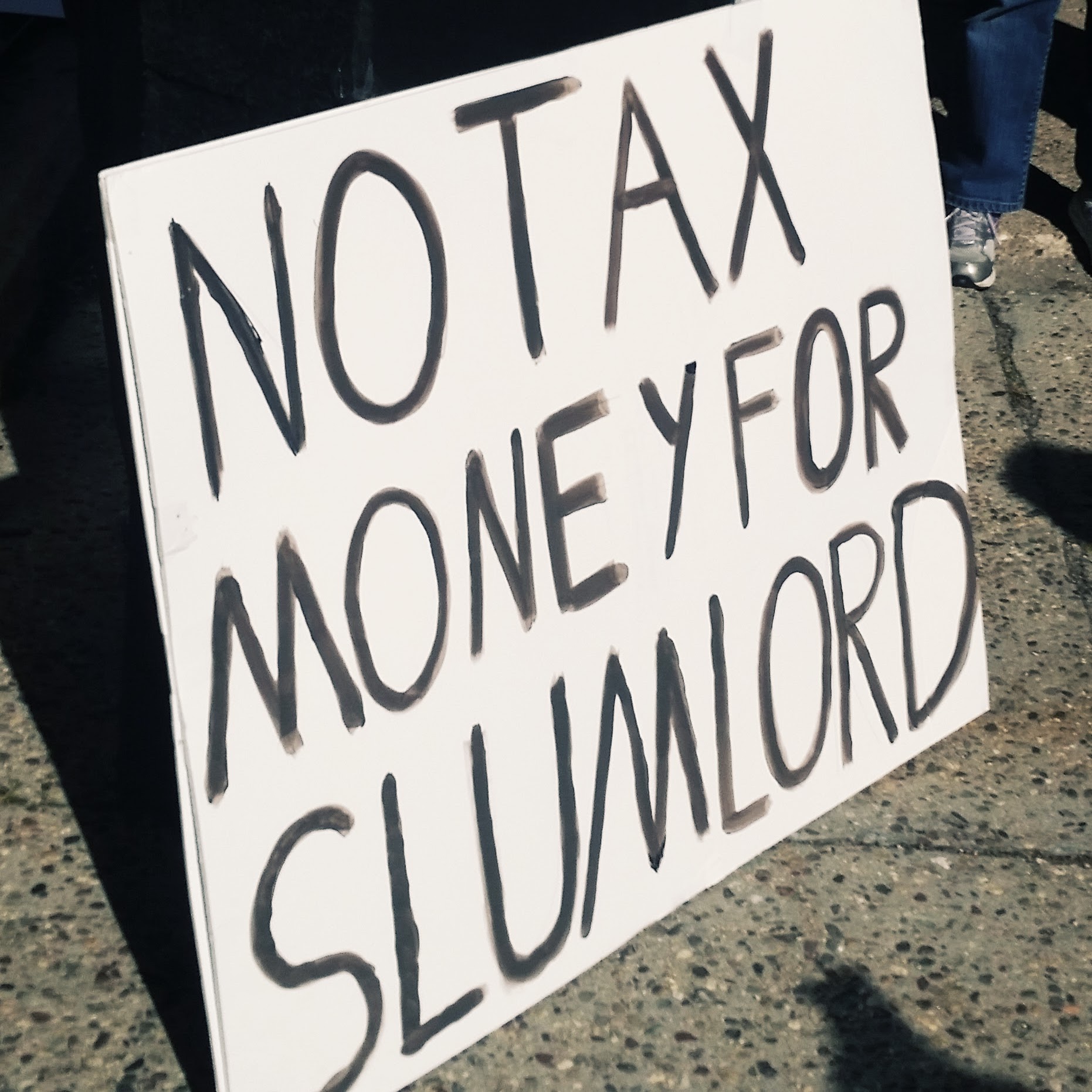
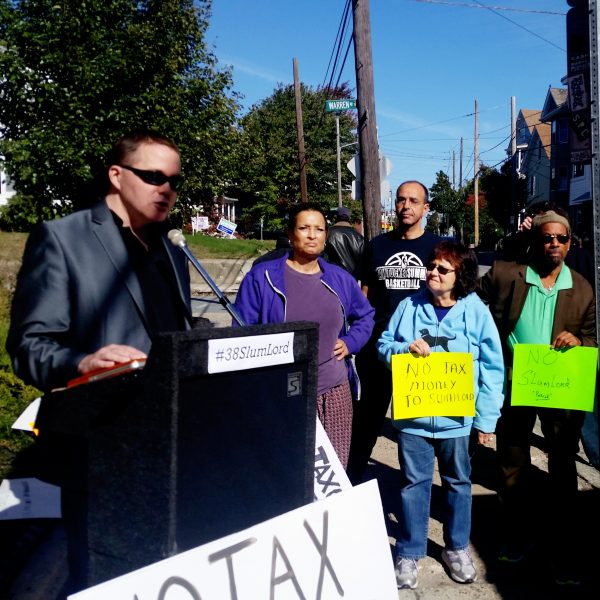 David Norton one of the leaders of the coalition that fought to keep the PawSox in Pawtucket and recently lost a Democratic primary election to unseat Pawtucket Representative David Coughlin, lead a protest outside Hope Artiste Village against Lance Robbins, controversial founder of Urban Smart Growth. As the ProJo
David Norton one of the leaders of the coalition that fought to keep the PawSox in Pawtucket and recently lost a Democratic primary election to unseat Pawtucket Representative David Coughlin, lead a protest outside Hope Artiste Village against Lance Robbins, controversial founder of Urban Smart Growth. As the ProJo 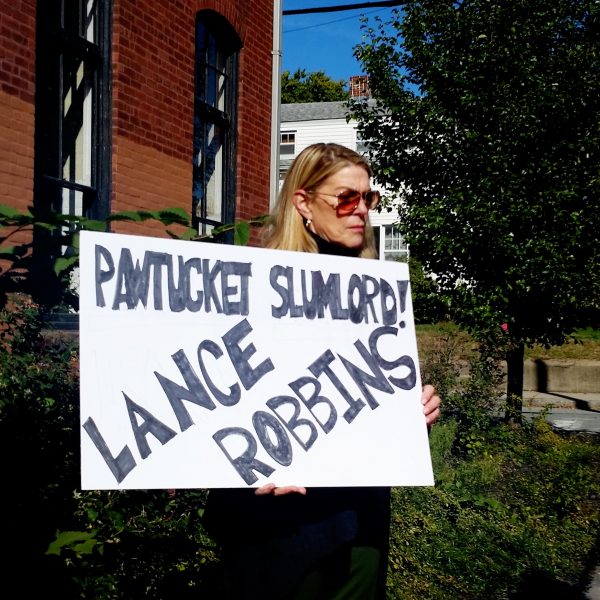 The downside, as reported extensively in
The downside, as reported extensively in 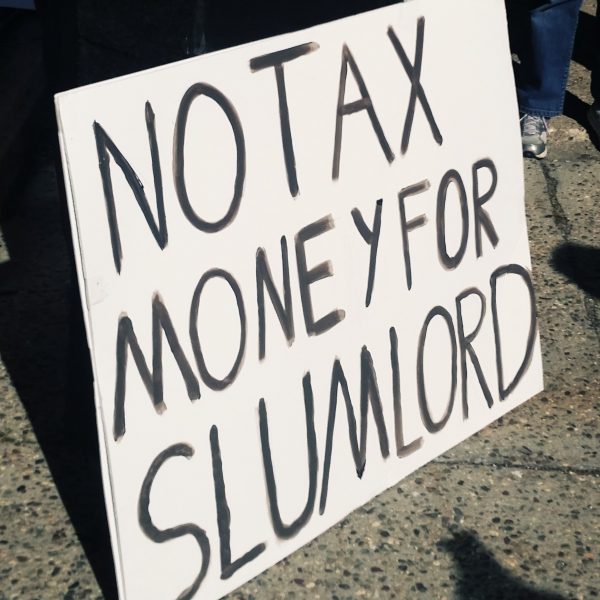
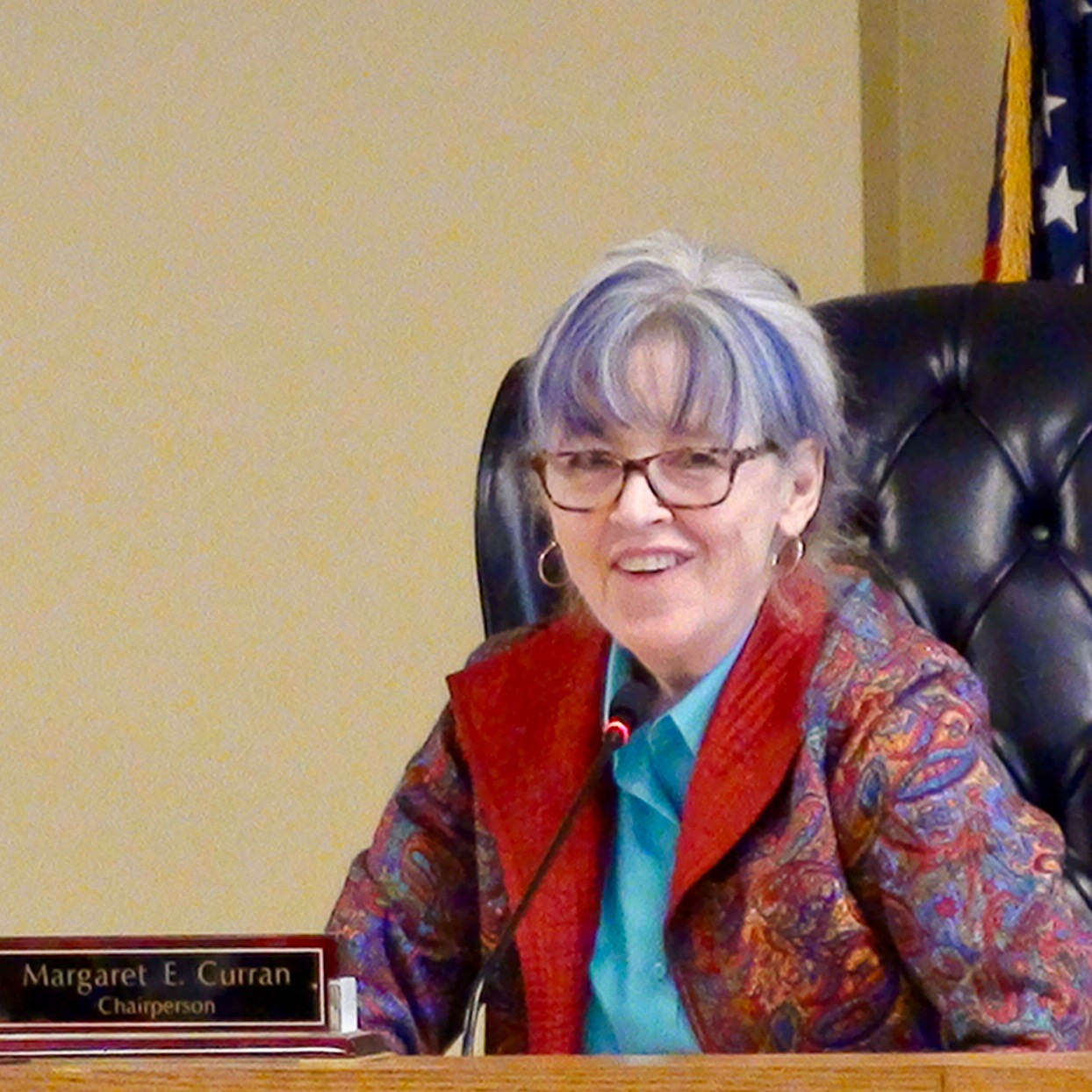
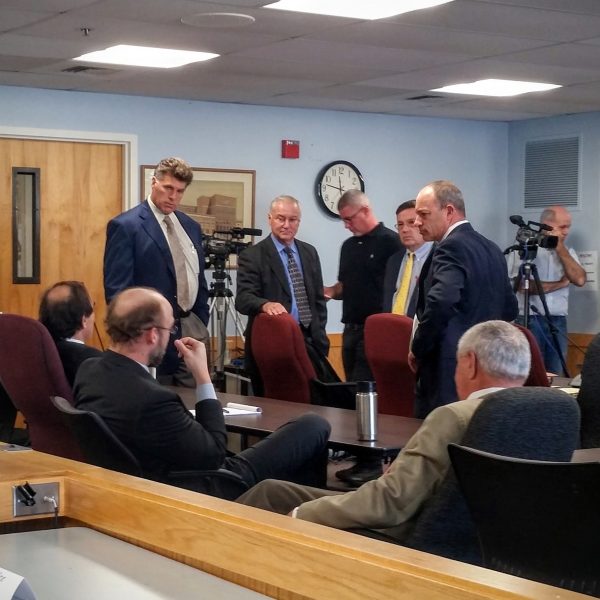
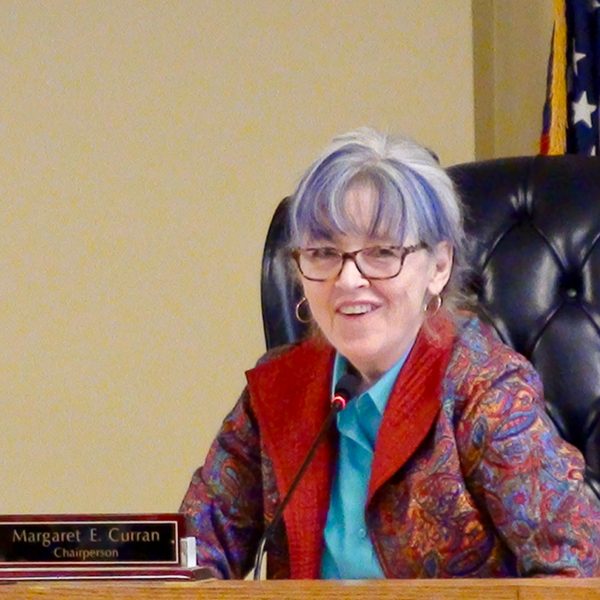
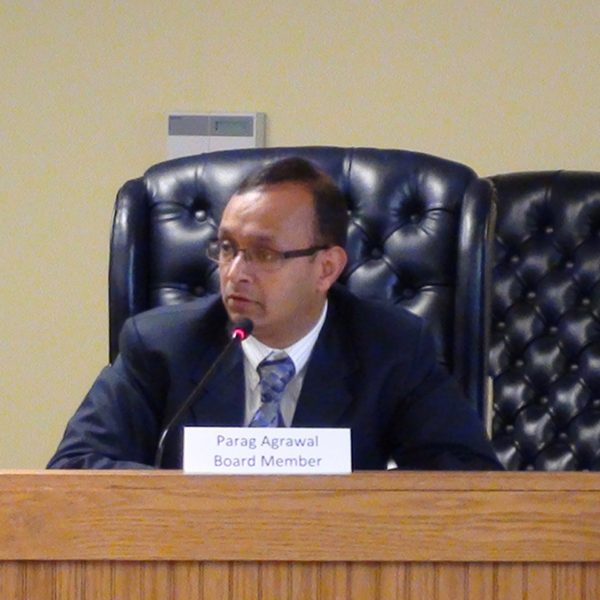
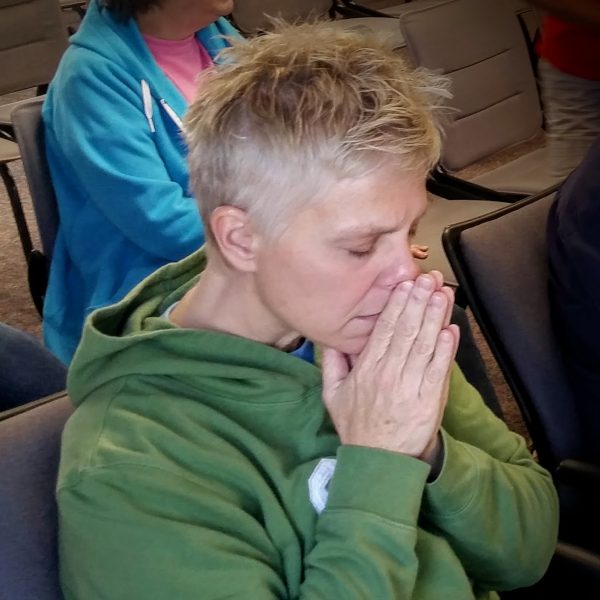


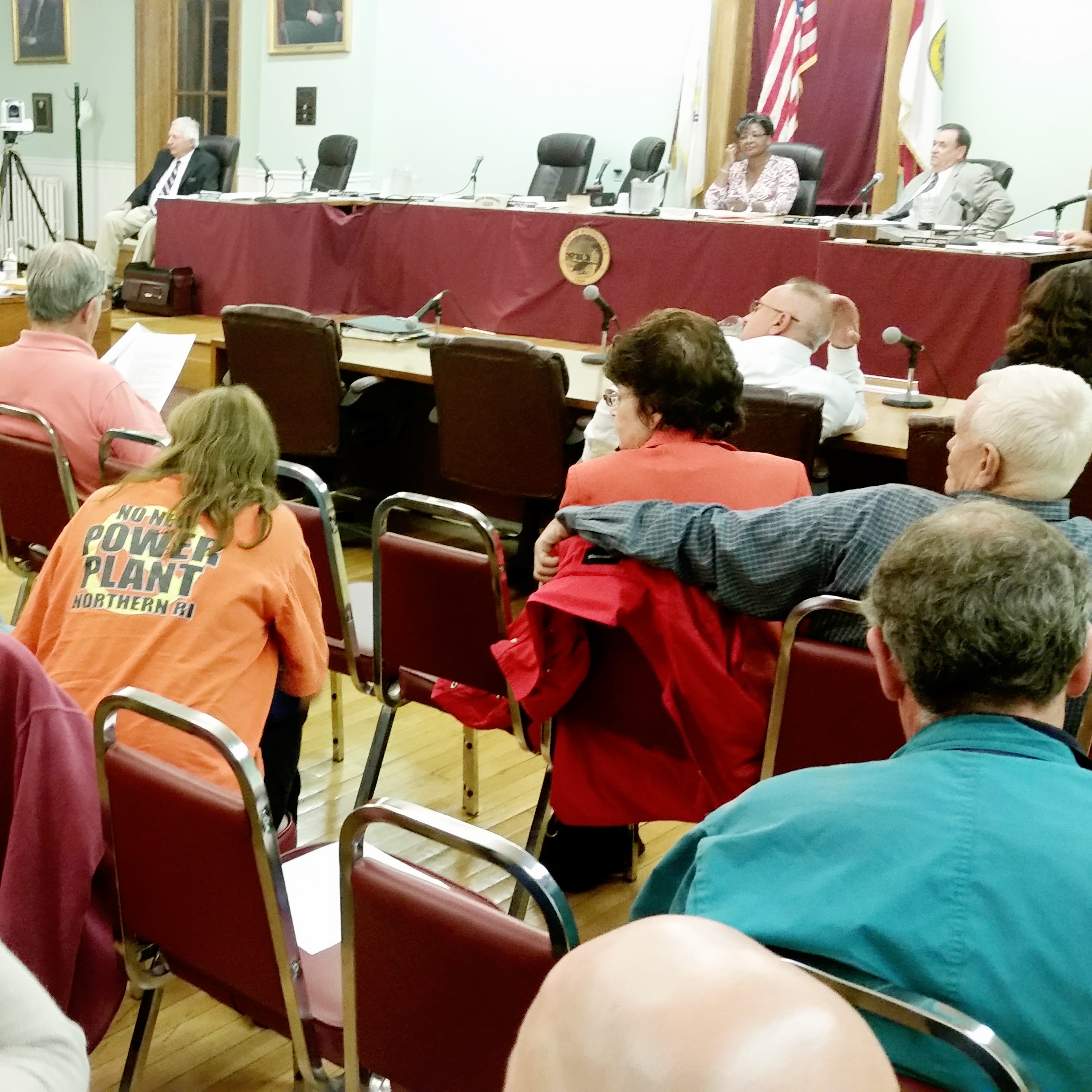
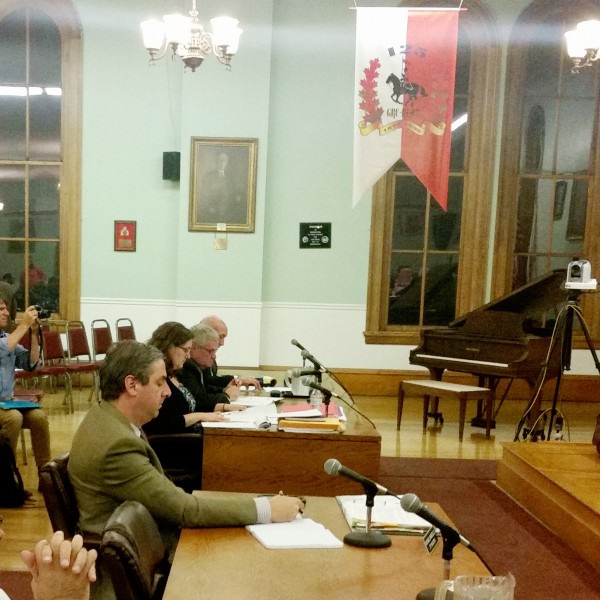
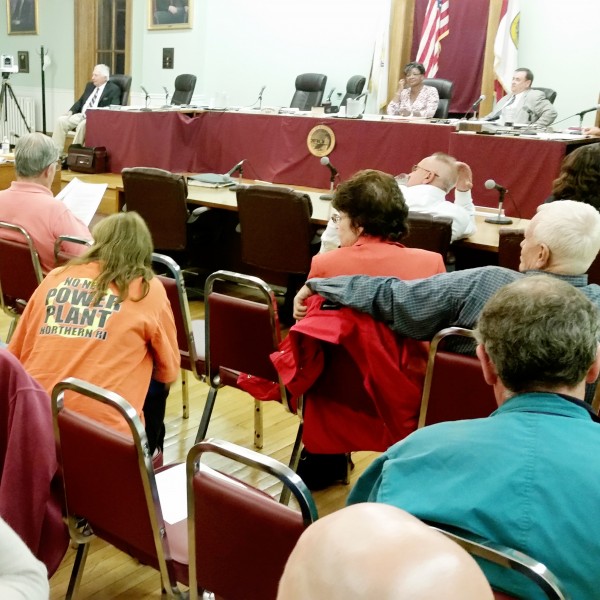 Gendron asked two questions. The first concerned rumors that Invenergy was in negotiations to locate the power plant in Woonsocket, as an alternative to locating the plant in Burrillville, where there has been fierce local and statewide opposition. The second concerned the possible sale of water to Invenergy, for the plant planned for Burrillville.
Gendron asked two questions. The first concerned rumors that Invenergy was in negotiations to locate the power plant in Woonsocket, as an alternative to locating the plant in Burrillville, where there has been fierce local and statewide opposition. The second concerned the possible sale of water to Invenergy, for the plant planned for Burrillville. “But with regard to your second question,” said Marcello, “you received a briefing in closed session, and that’s where that information must lay right now. In closed session.”
“But with regard to your second question,” said Marcello, “you received a briefing in closed session, and that’s where that information must lay right now. In closed session.”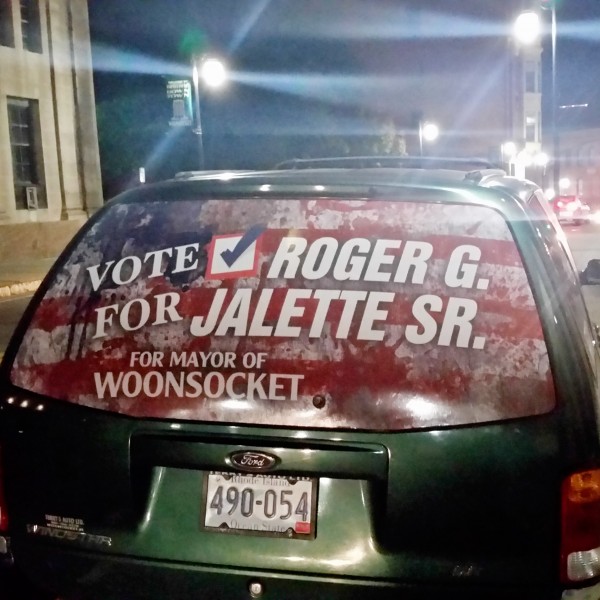 “I put this item on the agenda tonight,” said Gendron, “for discussion purposes… that is what precipitated the executive session that took place prior to this meeting.” The item was “an effort to bring out the truth,” said Gendron. “I think that we needed to start this talk, we needed to squelch some of the rumors.” The solicitor denied completely that there was a power plant coming to Woonsocket, said Gendron. Before today, “none of [the city council] knew what was going on, and that was the benefit of the executive session.”
“I put this item on the agenda tonight,” said Gendron, “for discussion purposes… that is what precipitated the executive session that took place prior to this meeting.” The item was “an effort to bring out the truth,” said Gendron. “I think that we needed to start this talk, we needed to squelch some of the rumors.” The solicitor denied completely that there was a power plant coming to Woonsocket, said Gendron. Before today, “none of [the city council] knew what was going on, and that was the benefit of the executive session.”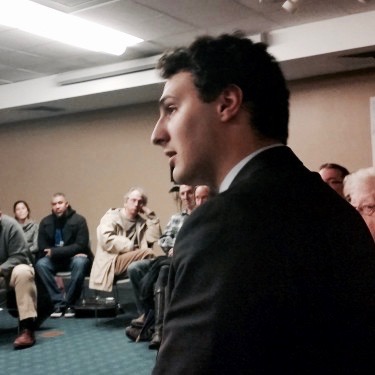

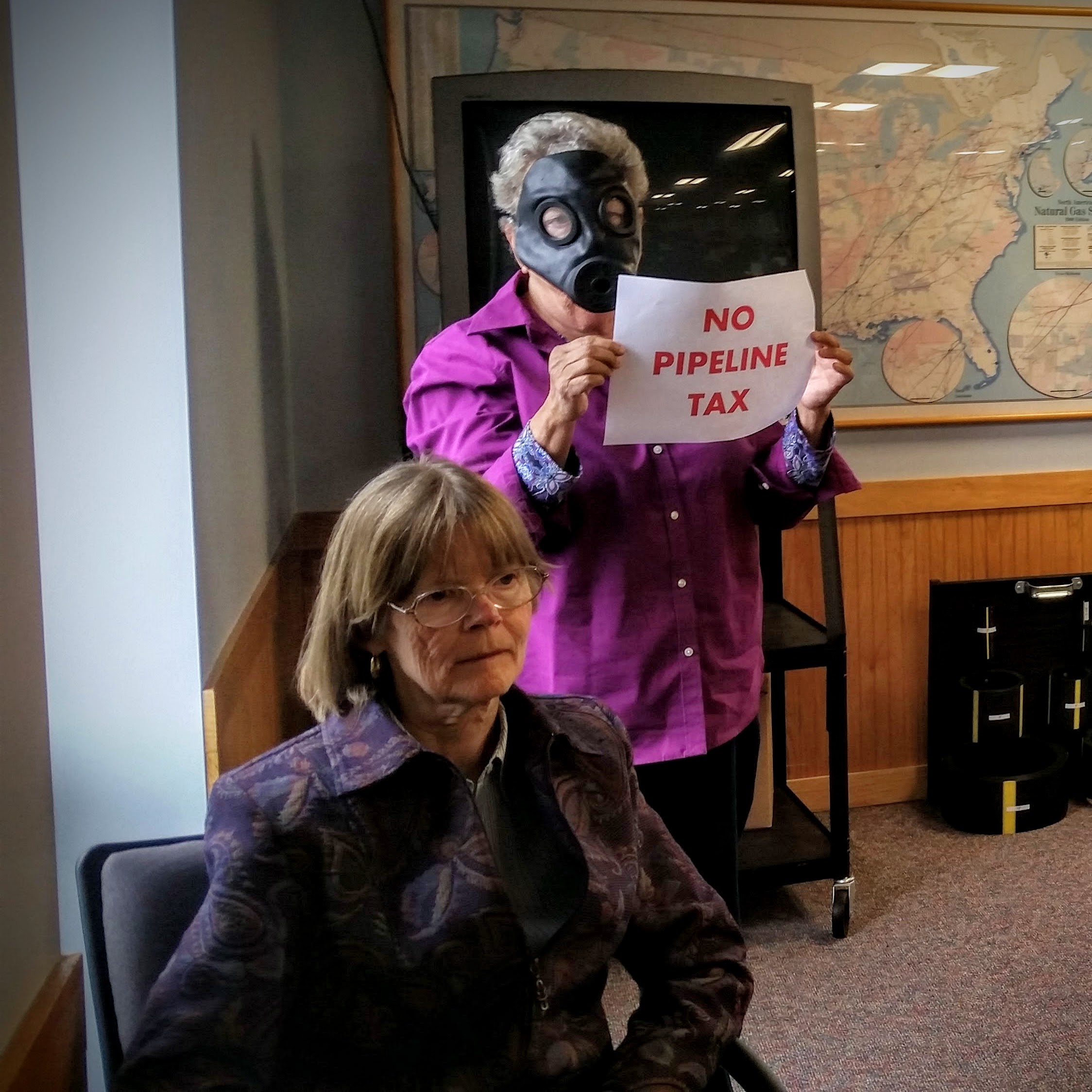
 The Rhode Island Public Utilities Commission (RIPUC) today ruled against Conservation Law Foundation (CLF)’s
The Rhode Island Public Utilities Commission (RIPUC) today ruled against Conservation Law Foundation (CLF)’s 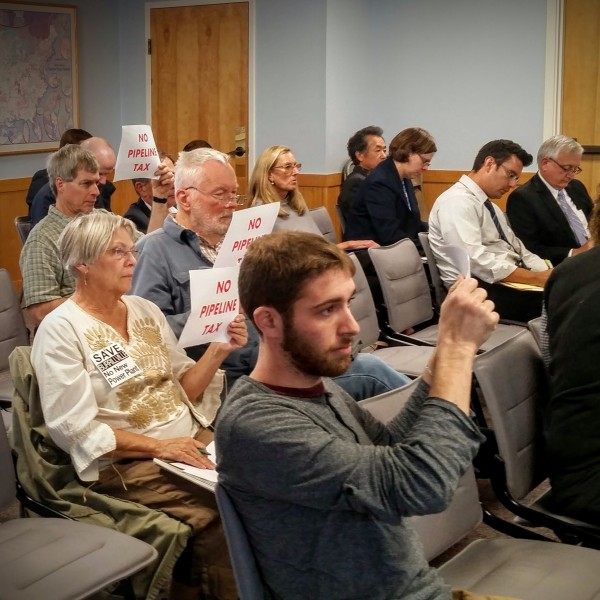 RIPUC board member Herbert DeSimone Jr agreed. He said that dismissal would not be appropriate, and withdrawing the application would create “unnecessary redundancies” upon refiling, as all the evidence heard to date would have to be heard again and all motions re-decided. DeSimone suggested that the RIPUC issue an indefinite stay in the proceedings, with the caveat that National Grid file a progress report on January 13, 2017.
RIPUC board member Herbert DeSimone Jr agreed. He said that dismissal would not be appropriate, and withdrawing the application would create “unnecessary redundancies” upon refiling, as all the evidence heard to date would have to be heard again and all motions re-decided. DeSimone suggested that the RIPUC issue an indefinite stay in the proceedings, with the caveat that National Grid file a progress report on January 13, 2017.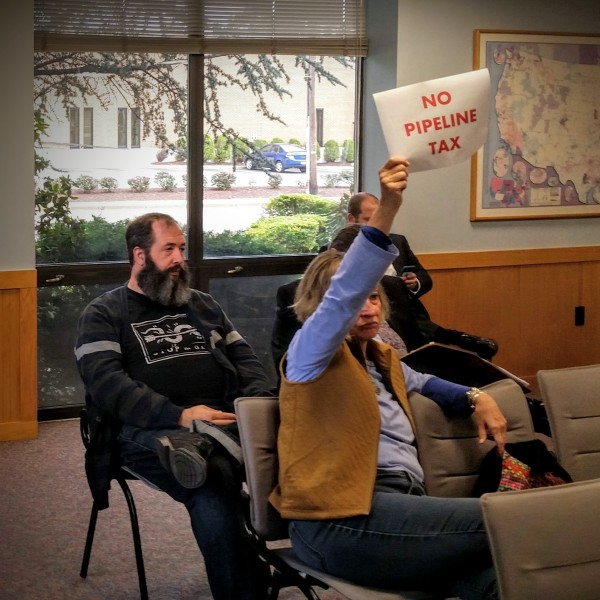
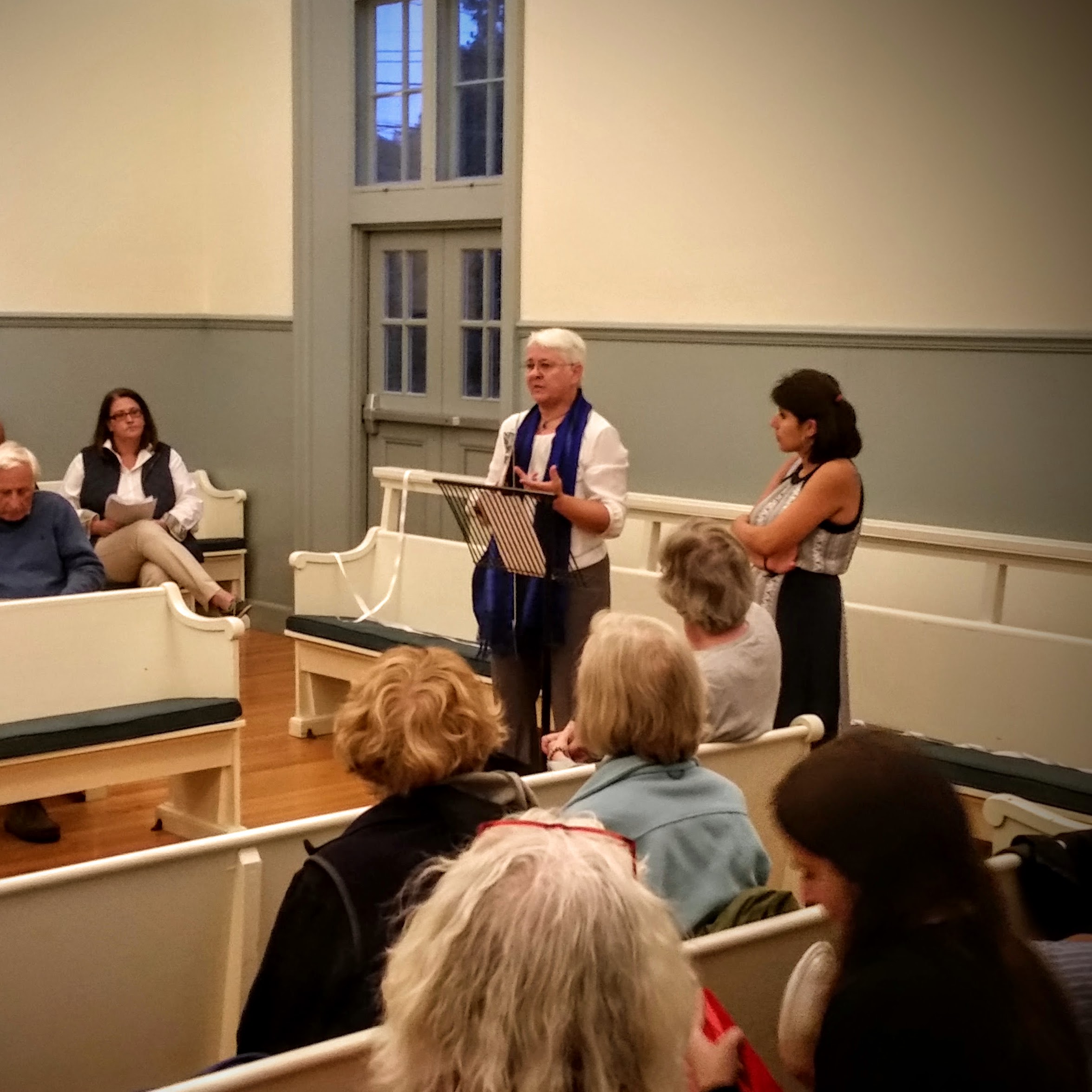
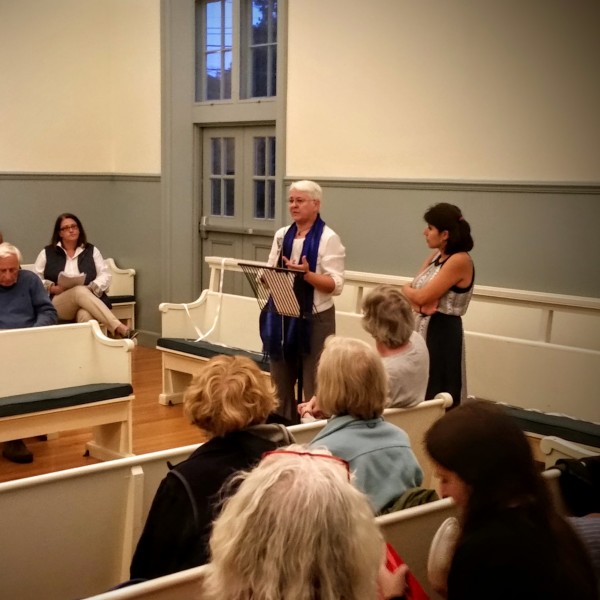
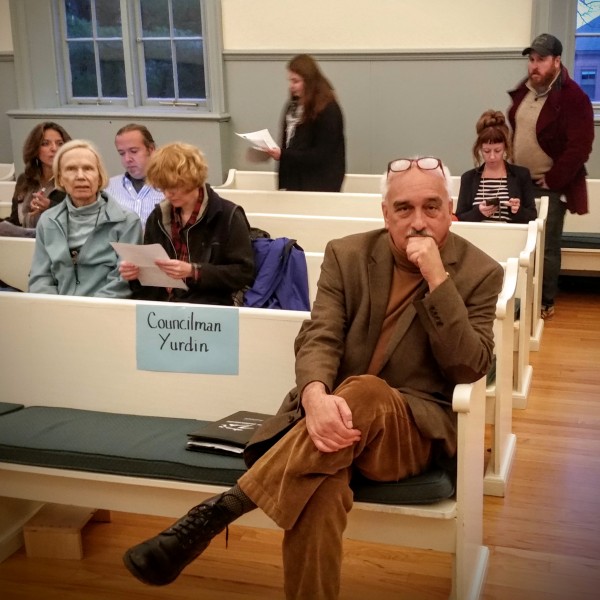


 A group of concerned Providence community members
A group of concerned Providence community members 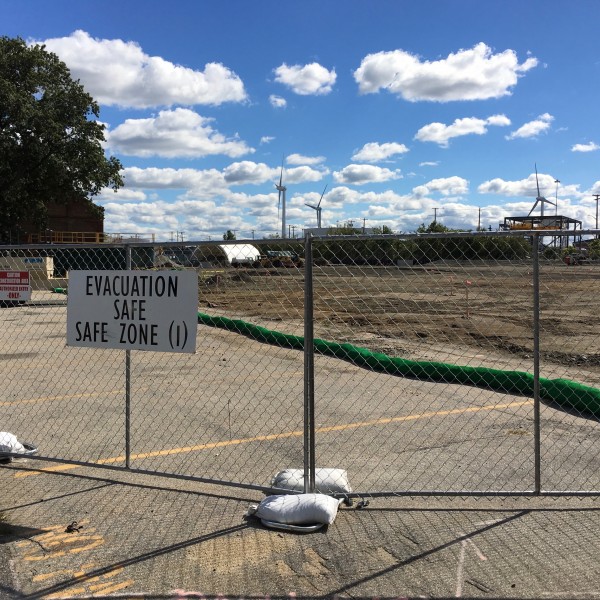 The project’s location, 642 Allens Ave, has a long history of industrial contamination dating back to the earliest days of the gas industry. Providence Gas Company operated a “manufactured gas plant” from 1910 to 1954 which resulted in the release of many toxic substances which polluted the soil and groundwater. The site has also been host to an ammonia plant, a toluene facility, a propane works, and most recently an LNG storage facility. Numerous substances which pose a risk to public health, safety, and the environment have been recorded at the site, including polycyclic aromatic hydrocarbons (PAHs), total petroleum hydrocarbons (TPH), phenolic compounds, volatile organic compounds (VOCs) including benzene and naphthalene, polychlorinated biphenyls (PCBs), ferri and ferro cyanide compounds, asbestos, and metals including lead and arsenic. Many locations in the site contain multiple hazardous substances at levels that far exceed allowed standards, and while some specific areas have been remediated since 1994, the majority of the land has not been remediated.
The project’s location, 642 Allens Ave, has a long history of industrial contamination dating back to the earliest days of the gas industry. Providence Gas Company operated a “manufactured gas plant” from 1910 to 1954 which resulted in the release of many toxic substances which polluted the soil and groundwater. The site has also been host to an ammonia plant, a toluene facility, a propane works, and most recently an LNG storage facility. Numerous substances which pose a risk to public health, safety, and the environment have been recorded at the site, including polycyclic aromatic hydrocarbons (PAHs), total petroleum hydrocarbons (TPH), phenolic compounds, volatile organic compounds (VOCs) including benzene and naphthalene, polychlorinated biphenyls (PCBs), ferri and ferro cyanide compounds, asbestos, and metals including lead and arsenic. Many locations in the site contain multiple hazardous substances at levels that far exceed allowed standards, and while some specific areas have been remediated since 1994, the majority of the land has not been remediated. “This is our community, people live here and kids go to school here, why does National Grid think it’s okay to put our lives and our health at risk? It’s our legal right to be involved in these decisions,” said Gina Rodríguez, a community resident and leader in the No LNG in PVD coalition. Monica Huertas, another coalition leader said, “It’s outrageous that there’s a known toxic site this close to my house, and we can go down Allens Ave and see clouds of dust blowing off from the piles that National Grid is digging up. The whole point of this Public Involvement Plan law is to address things like that, but National Grid is just ignoring our concerns and DEM isn’t doing anything to stop them.”
“This is our community, people live here and kids go to school here, why does National Grid think it’s okay to put our lives and our health at risk? It’s our legal right to be involved in these decisions,” said Gina Rodríguez, a community resident and leader in the No LNG in PVD coalition. Monica Huertas, another coalition leader said, “It’s outrageous that there’s a known toxic site this close to my house, and we can go down Allens Ave and see clouds of dust blowing off from the piles that National Grid is digging up. The whole point of this Public Involvement Plan law is to address things like that, but National Grid is just ignoring our concerns and DEM isn’t doing anything to stop them.”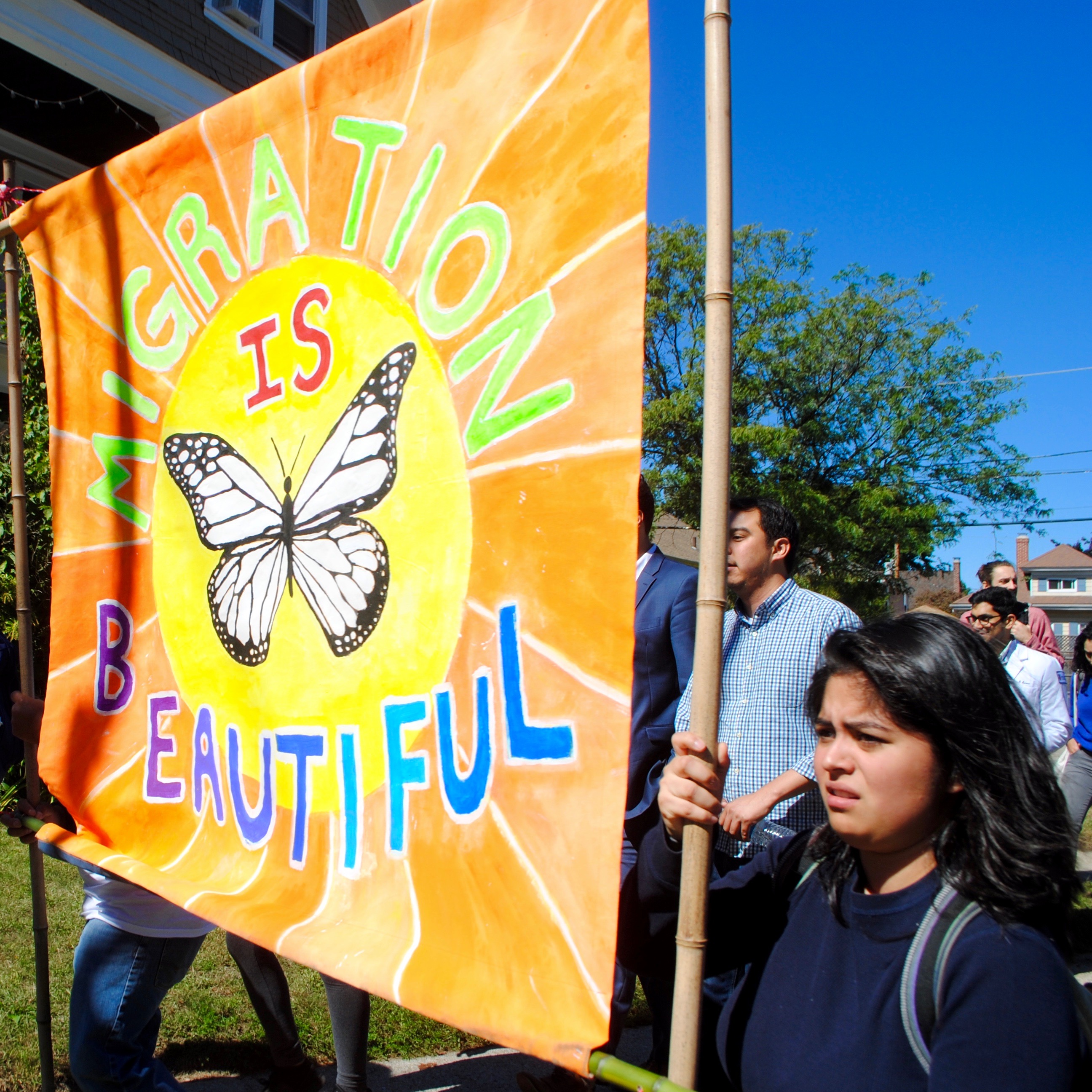
 A
A  The march was organized by the Safer Rhodes Coalition and Comité en Acción. Organizer Claire Pimental, writing for
The march was organized by the Safer Rhodes Coalition and Comité en Acción. Organizer Claire Pimental, writing for 
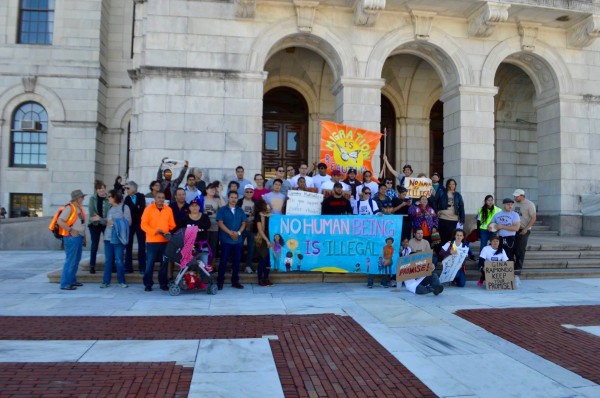




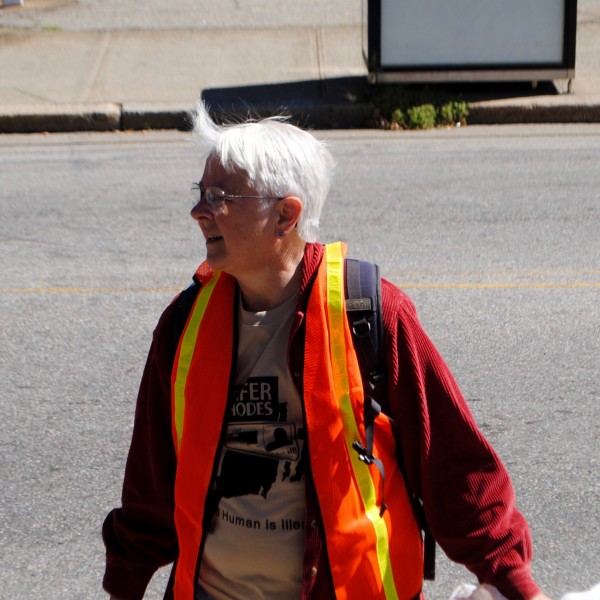

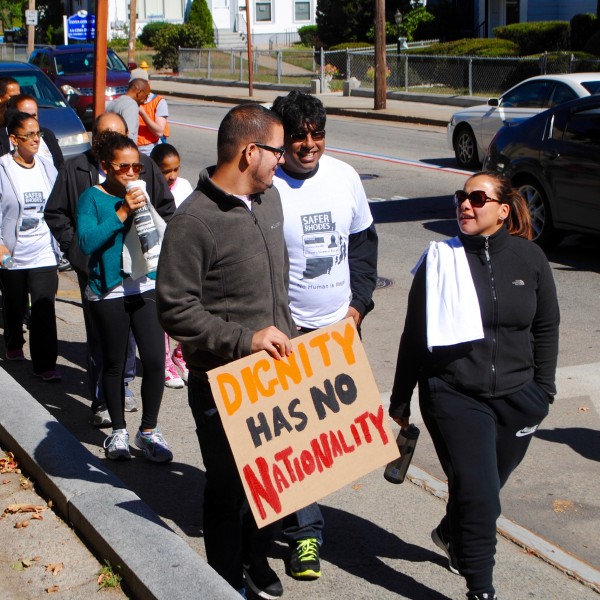
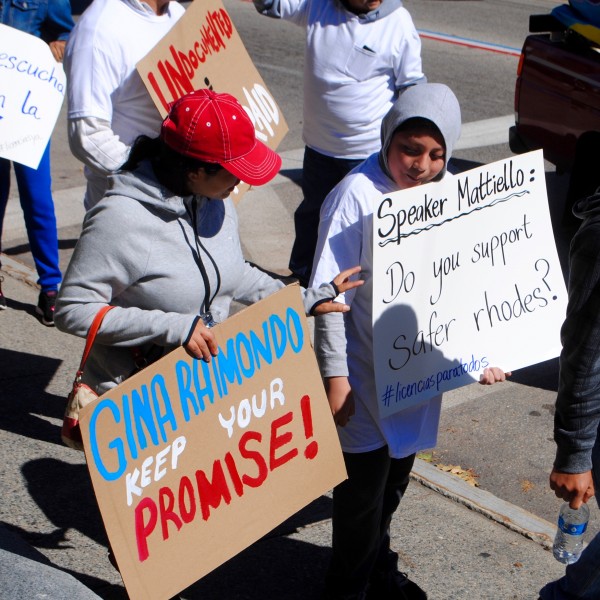


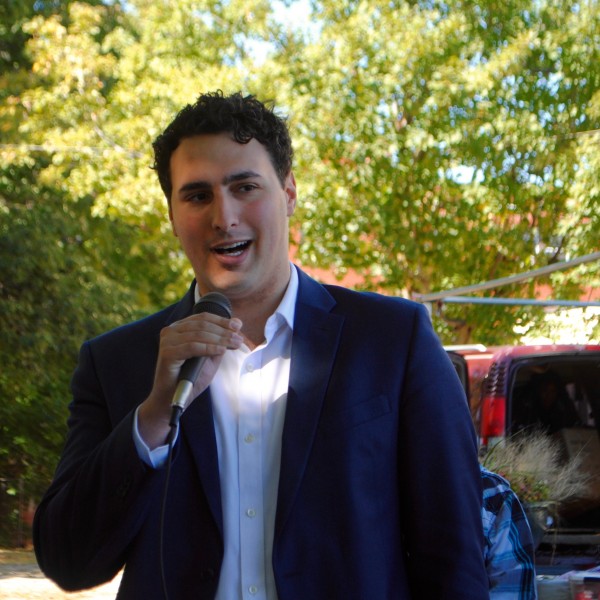
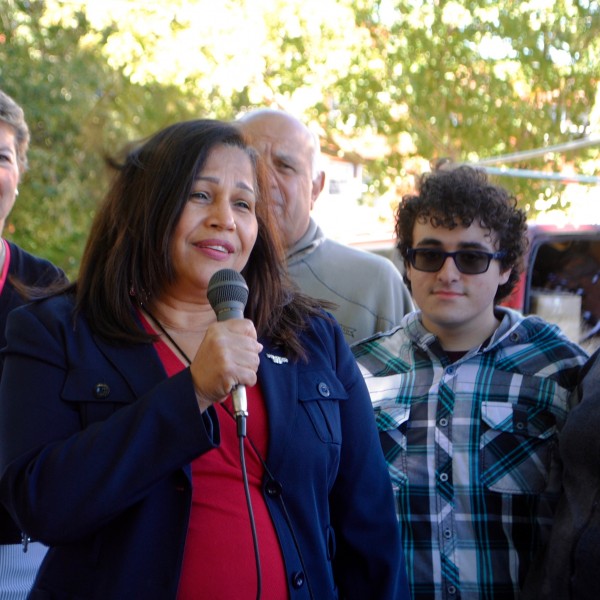

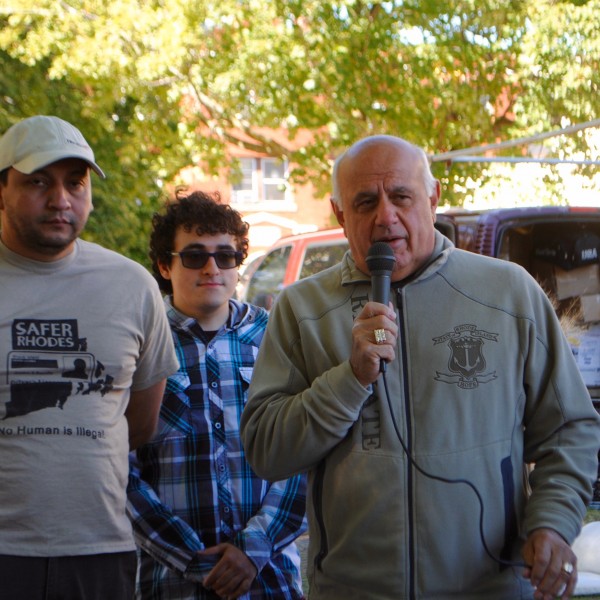
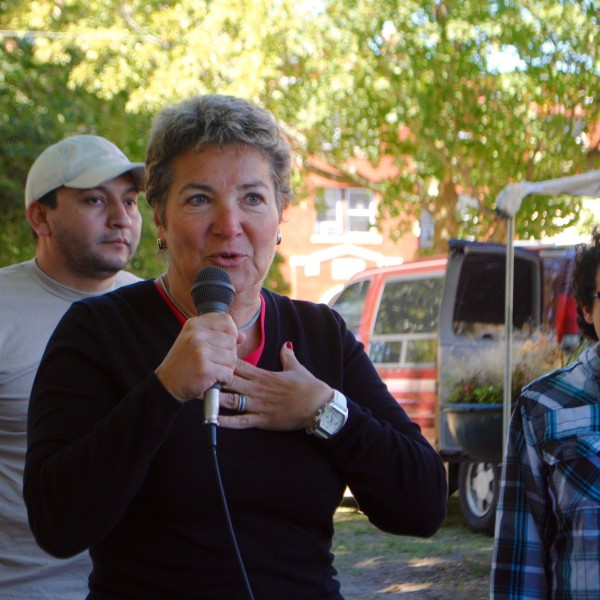
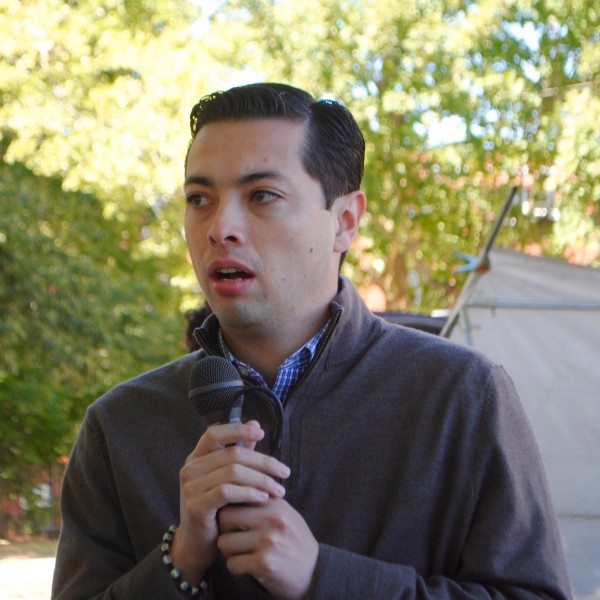

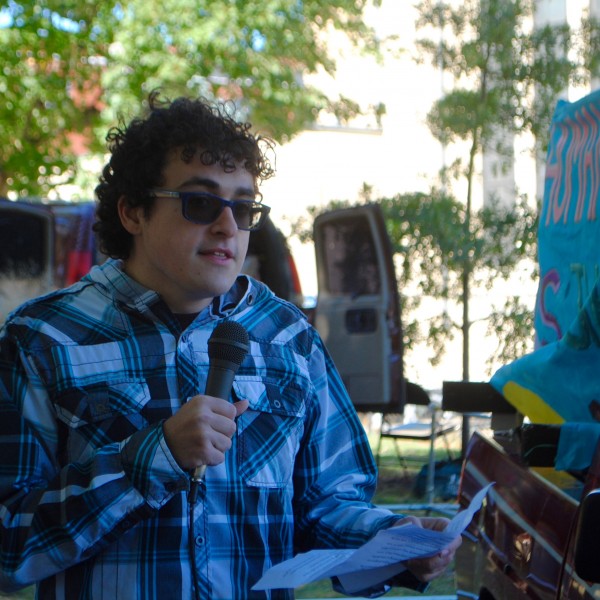

 Even as the Burrillville Town Council approved a resolution to oppose the siting and construction of Invenergy’s $700 million fracked gas and diesel oil burning power plant in their town, the next battle, over a proposed
Even as the Burrillville Town Council approved a resolution to oppose the siting and construction of Invenergy’s $700 million fracked gas and diesel oil burning power plant in their town, the next battle, over a proposed 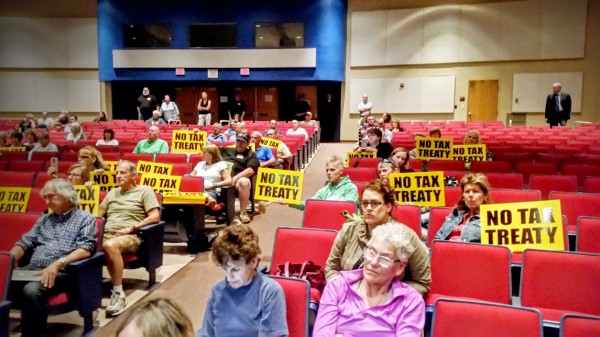
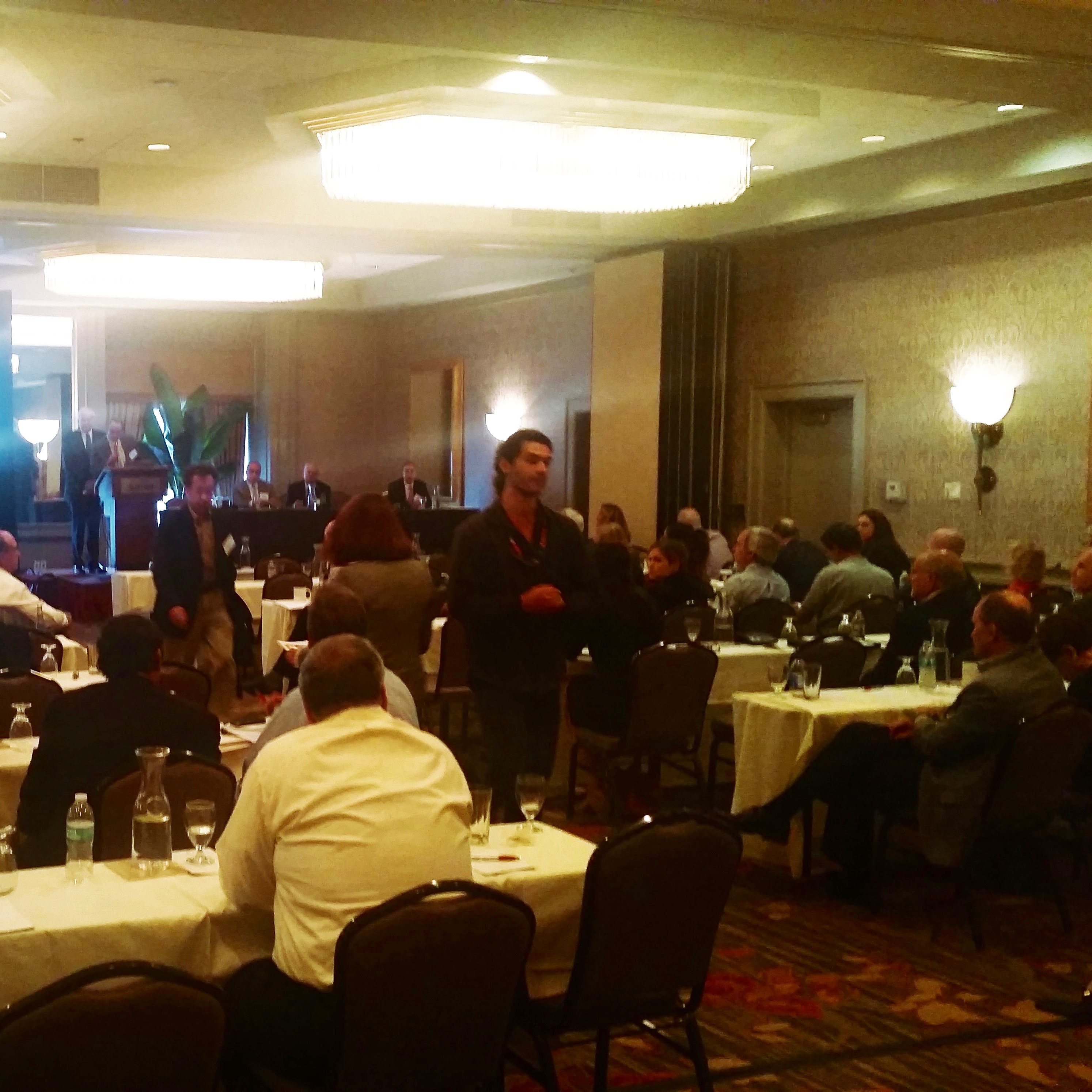
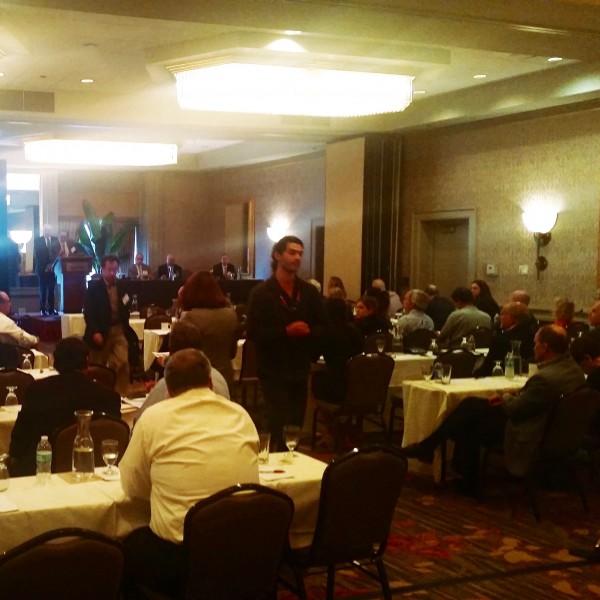 The Consumer Liaison Group (CLG) Meeting happens four times a year and its a chance for ISO-NE to exchange information with electricity consumers in New England. ISO-NE is the group that regulates our electricity markets and keeps the lights on by coordinating electricity generation and transmission. They run billion dollar markets and interact with companies like Spectra Energy, Invenergy, National Grid and Deepwater Wind. Pretty much every aspect of the process of getting electricity to your television is touched upon by ISO-NE in some way.
The Consumer Liaison Group (CLG) Meeting happens four times a year and its a chance for ISO-NE to exchange information with electricity consumers in New England. ISO-NE is the group that regulates our electricity markets and keeps the lights on by coordinating electricity generation and transmission. They run billion dollar markets and interact with companies like Spectra Energy, Invenergy, National Grid and Deepwater Wind. Pretty much every aspect of the process of getting electricity to your television is touched upon by ISO-NE in some way. The latest meeting of the CLG, in Providence on Thursday, featured a panel discussion with representatives from the four companies mentioned above. The panel was pulled together with the help of Douglas Gablinske, executive director of The Energy Council of Rhode Island (TEC-RI) an advocacy group for energy company concerns. Readers of RI Future may remember that Gablinske was a vocal
The latest meeting of the CLG, in Providence on Thursday, featured a panel discussion with representatives from the four companies mentioned above. The panel was pulled together with the help of Douglas Gablinske, executive director of The Energy Council of Rhode Island (TEC-RI) an advocacy group for energy company concerns. Readers of RI Future may remember that Gablinske was a vocal 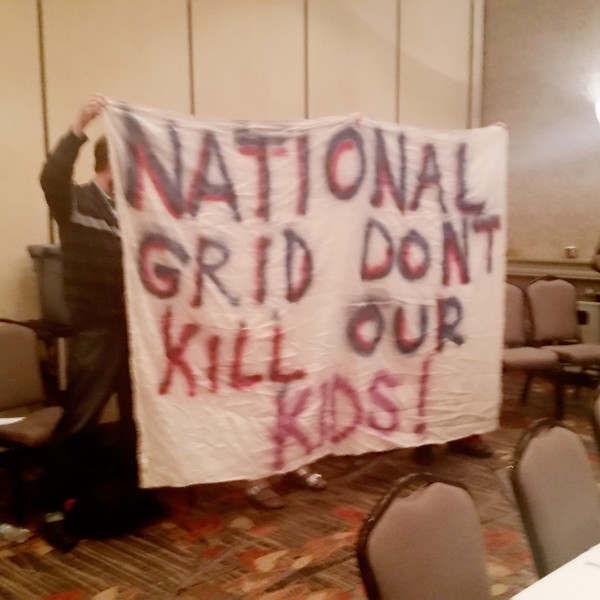
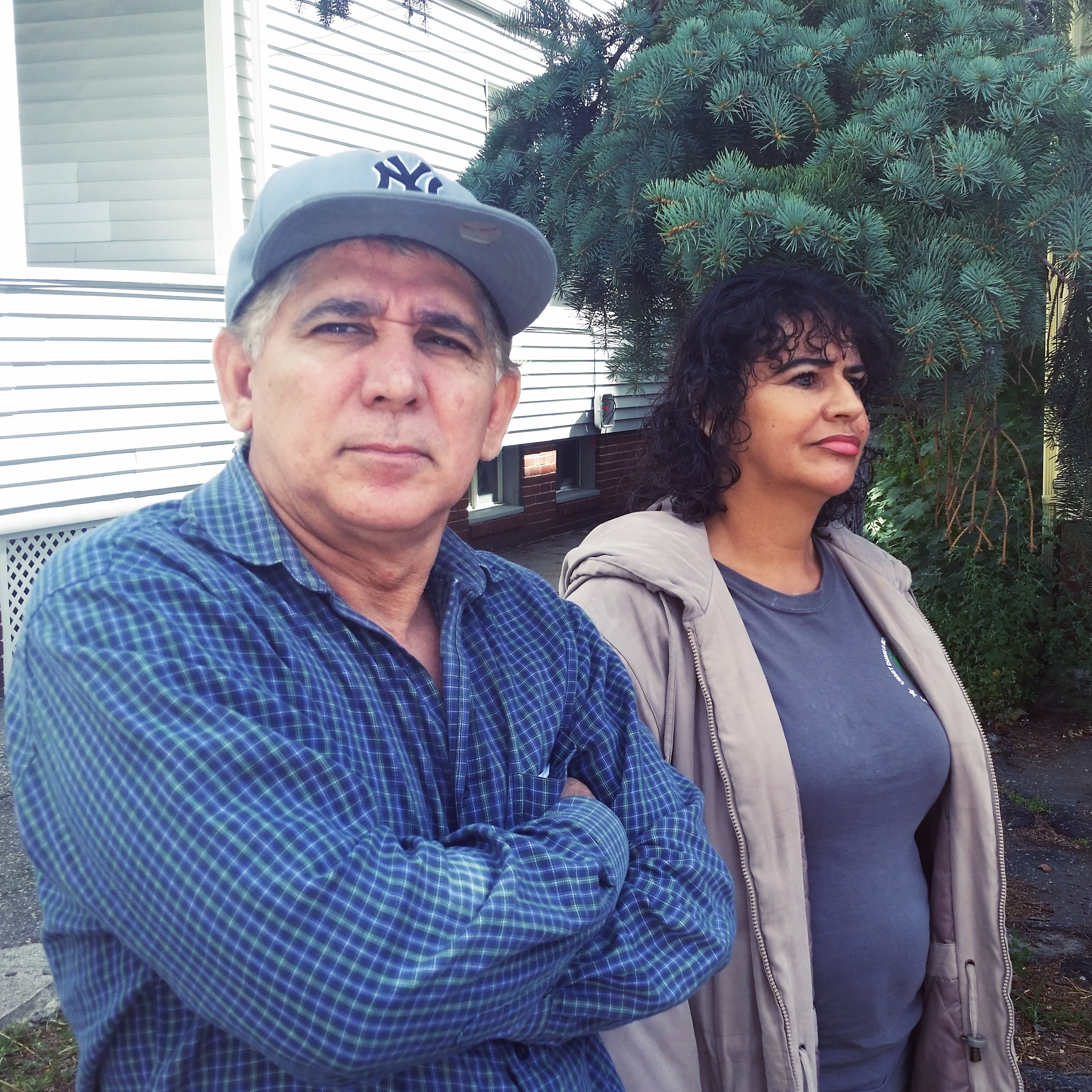
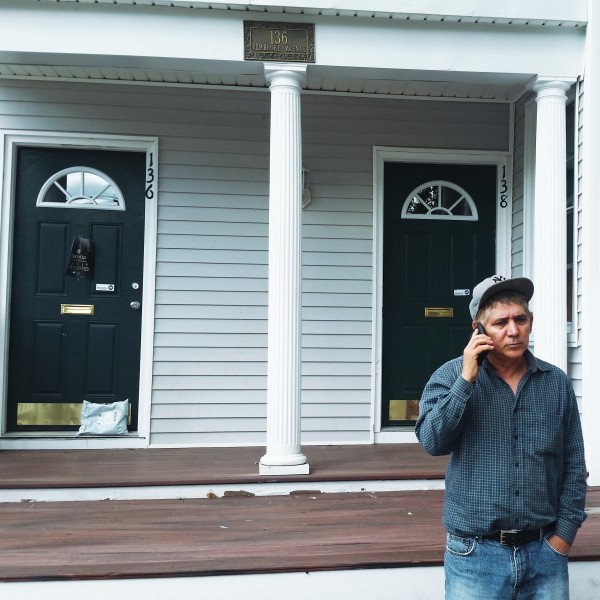
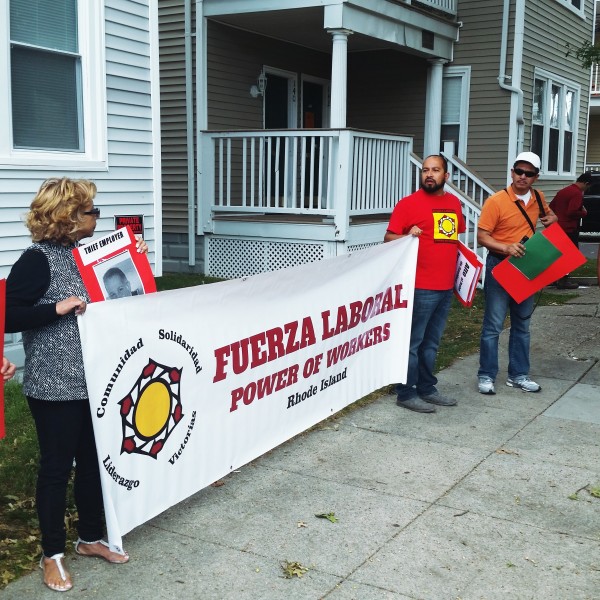 Fuerza maintains that on May 26-29, Civetti’s company “assigned a group of workers to clean apartments located in the area surrounding Providence College. The workers say that Civetti assigned workers to the houses that needed cleaning and supplied them with company tee shirts and cleaning supplies. After the job was completed, 8 workers were not compensated for those 4 days, 11 hours a day.” Civetti claimed that the people who cleaned his apartments were hired by subcontractors, and that the the subcontractors owe the money, not him.
Fuerza maintains that on May 26-29, Civetti’s company “assigned a group of workers to clean apartments located in the area surrounding Providence College. The workers say that Civetti assigned workers to the houses that needed cleaning and supplied them with company tee shirts and cleaning supplies. After the job was completed, 8 workers were not compensated for those 4 days, 11 hours a day.” Civetti claimed that the people who cleaned his apartments were hired by subcontractors, and that the the subcontractors owe the money, not him.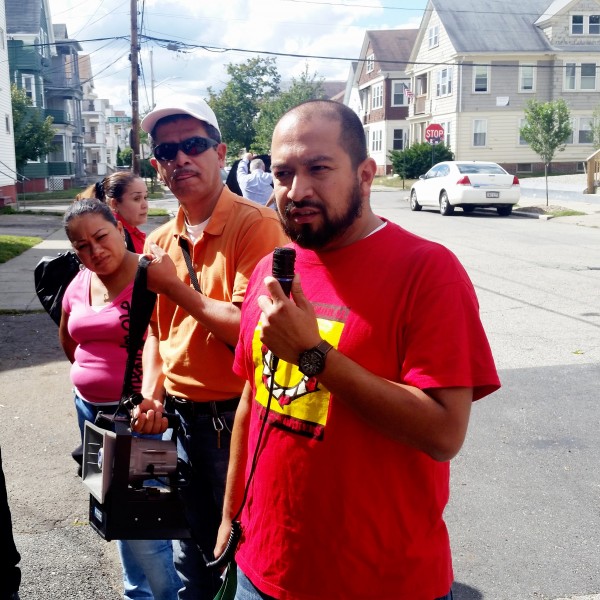 On Thursday about a dozen workers and activists showed up at Civetti’s offices near Providence College, and began leafleting houses and passing students. Organizer Raul Figueroa carried a megaphone and broadcast the workers’ complaints to the neighborhood. Once the workers arrived at Civetti’s offices, Fabian, one of the workers, called Civetti on the phone and asked him to come down and pay him the money he is owed. When Civetti would not commit to do so, the protest continued.
On Thursday about a dozen workers and activists showed up at Civetti’s offices near Providence College, and began leafleting houses and passing students. Organizer Raul Figueroa carried a megaphone and broadcast the workers’ complaints to the neighborhood. Once the workers arrived at Civetti’s offices, Fabian, one of the workers, called Civetti on the phone and asked him to come down and pay him the money he is owed. When Civetti would not commit to do so, the protest continued.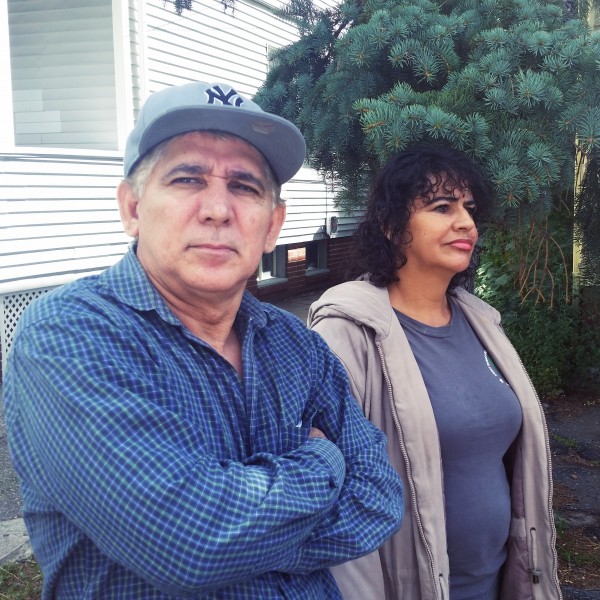
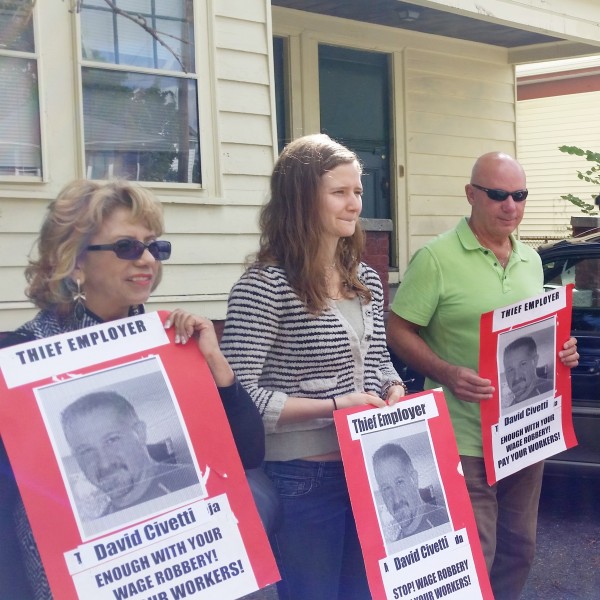
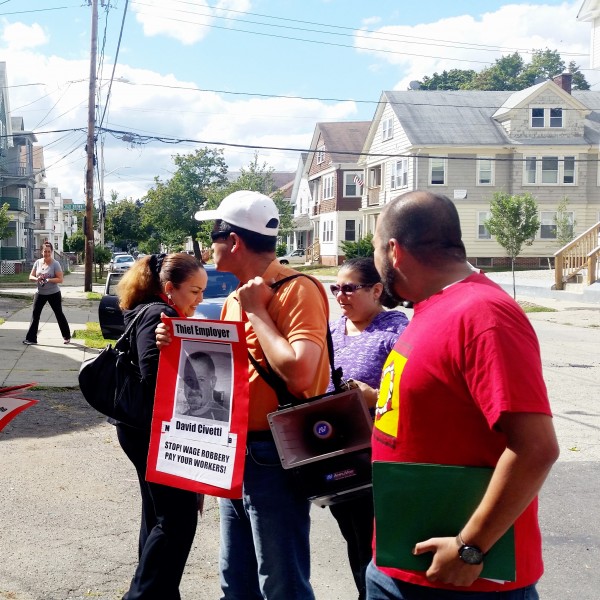


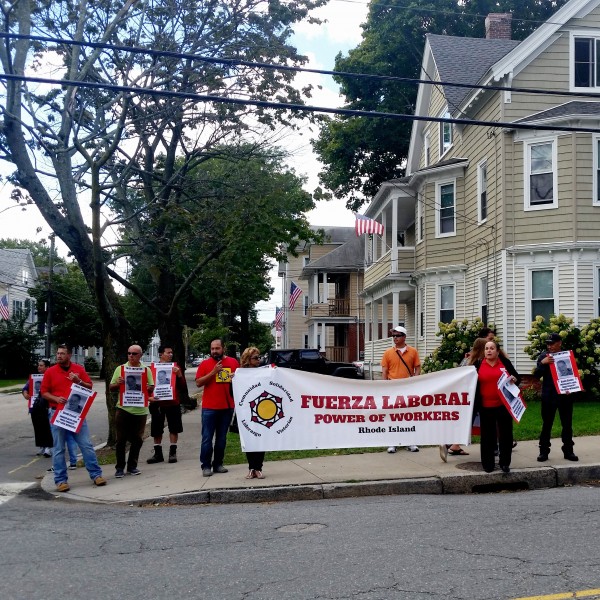
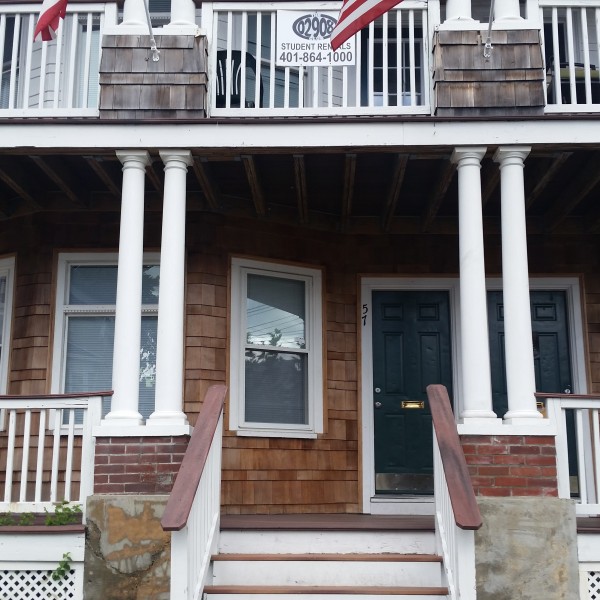
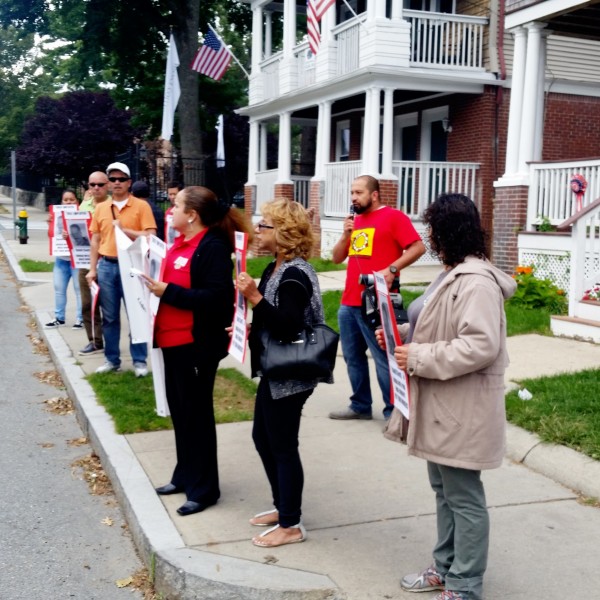

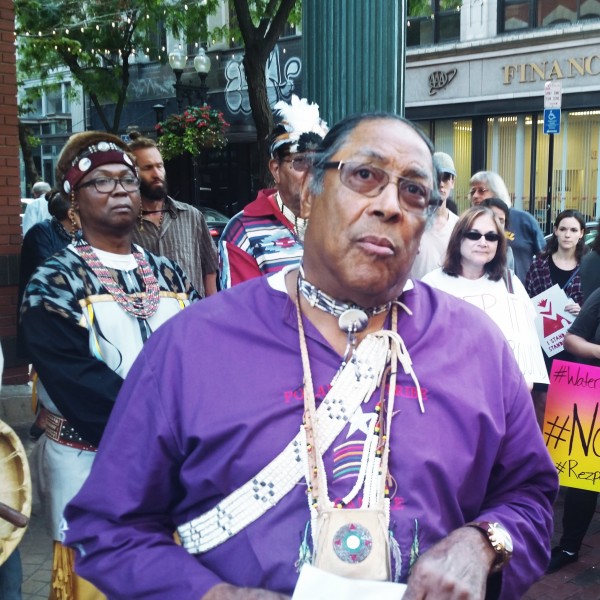 TD Bank in downtown Providence became the target of local environmental and indigenous American activists Thursday in response to calls for solidarity with the Standing Rock Sioux as they continue to battle the $3.78 billion Dakota Access Pipeline (DAPL). TD Bank is one of many financial institutions funding the pipeline. Similar actions have been
TD Bank in downtown Providence became the target of local environmental and indigenous American activists Thursday in response to calls for solidarity with the Standing Rock Sioux as they continue to battle the $3.78 billion Dakota Access Pipeline (DAPL). TD Bank is one of many financial institutions funding the pipeline. Similar actions have been 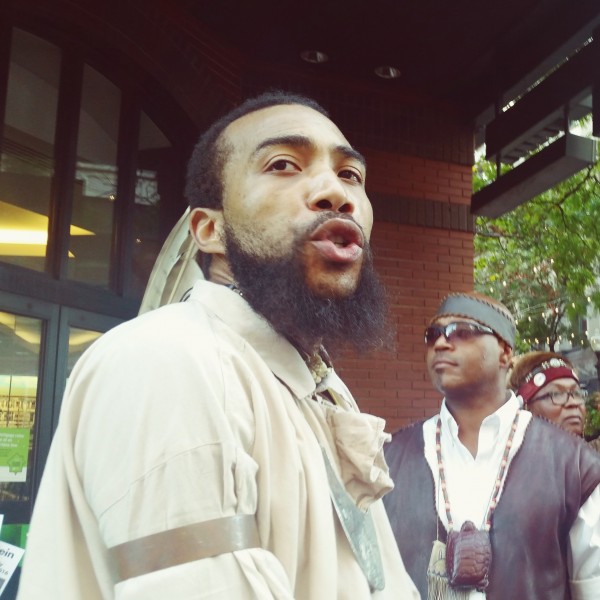 Organizers contend that construction of the DAPL “would engender a renewed fracking-frenzy in the Bakken shale region, as well as endanger a source of fresh water for the Standing Rock Sioux and 8 million people living downstream. DAPL would also impact many sites that are sacred to the Standing Rock Sioux and other indigenous nations.”
Organizers contend that construction of the DAPL “would engender a renewed fracking-frenzy in the Bakken shale region, as well as endanger a source of fresh water for the Standing Rock Sioux and 8 million people living downstream. DAPL would also impact many sites that are sacred to the Standing Rock Sioux and other indigenous nations.”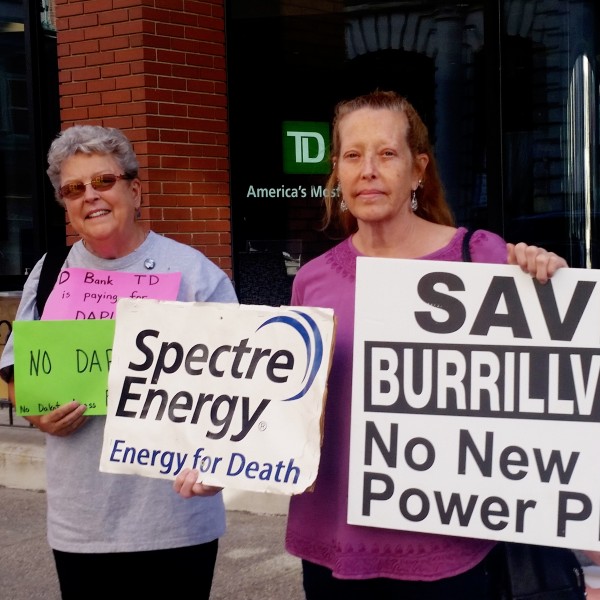

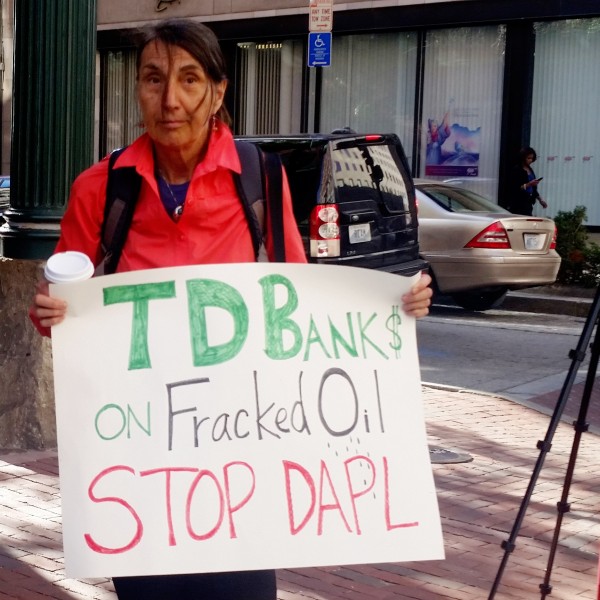




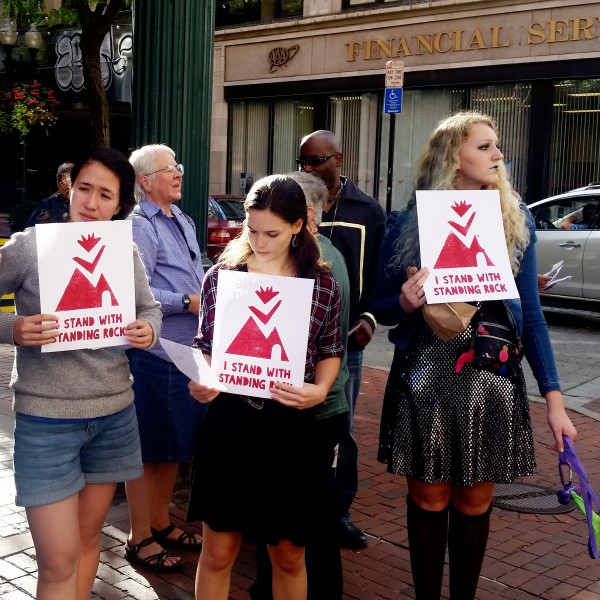
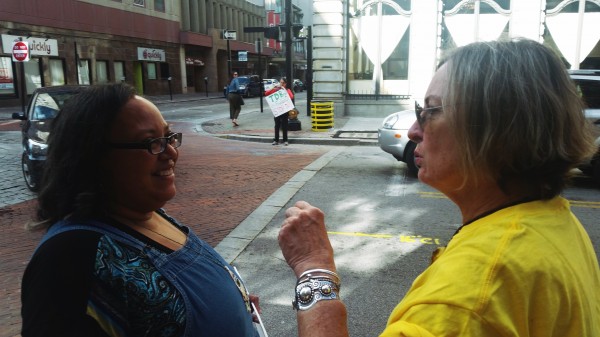
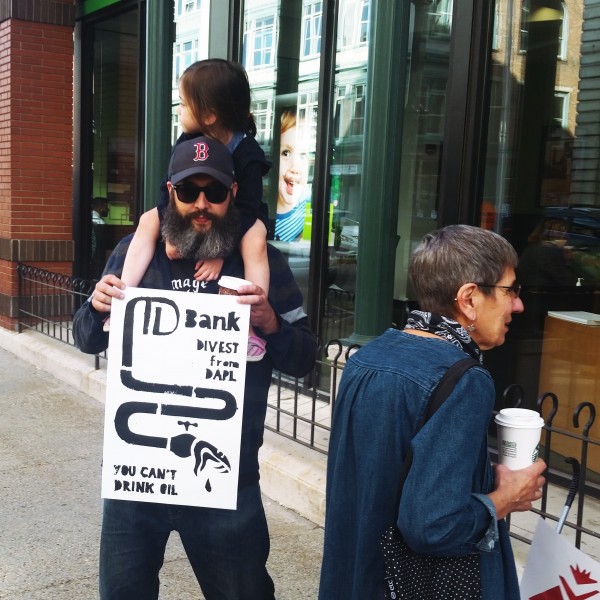

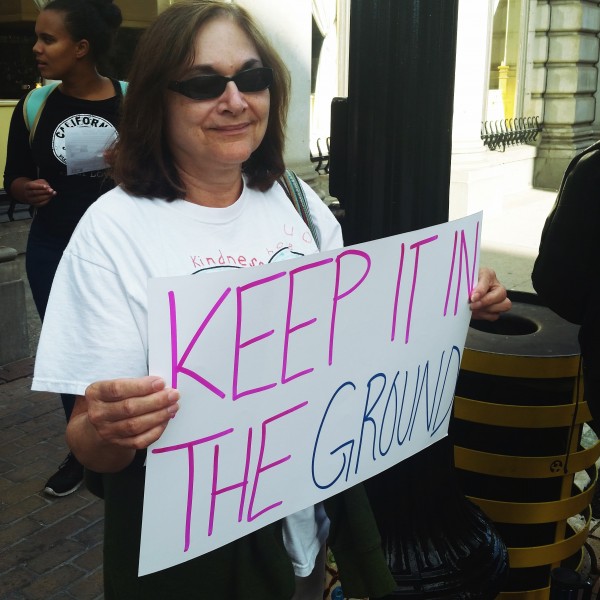
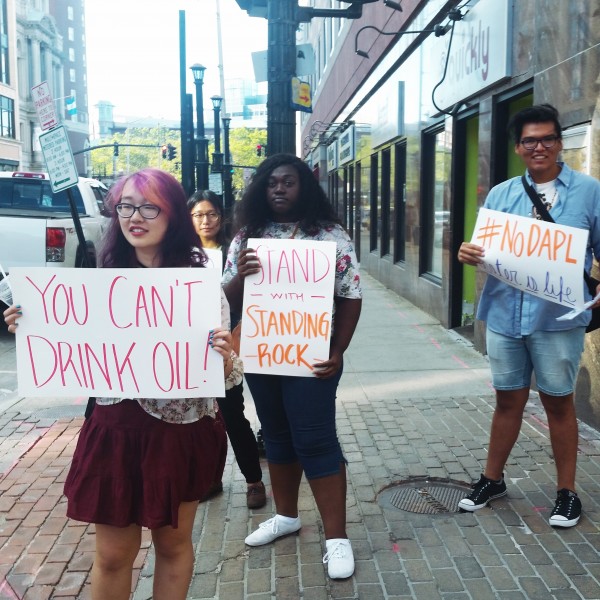

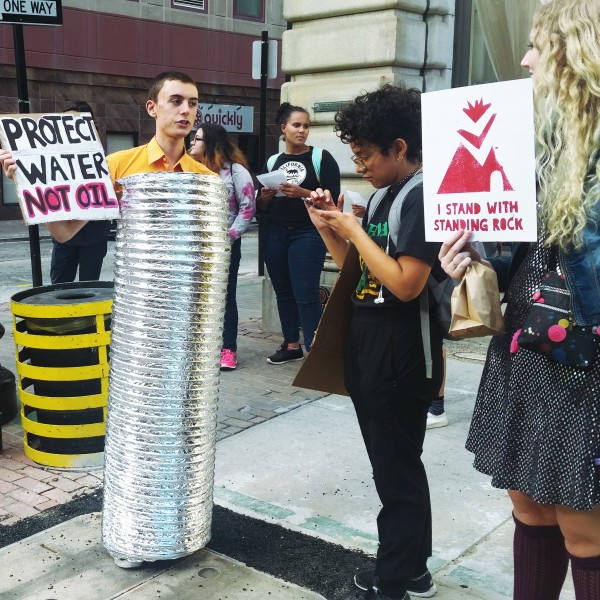
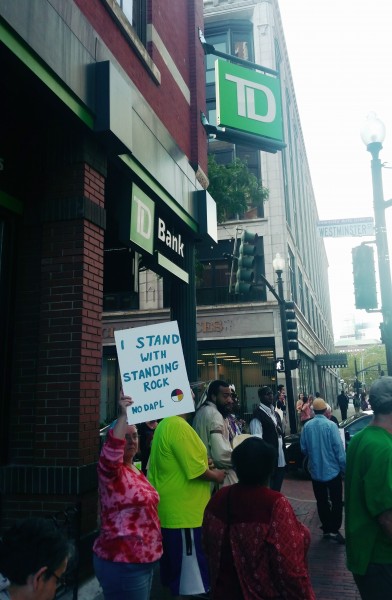

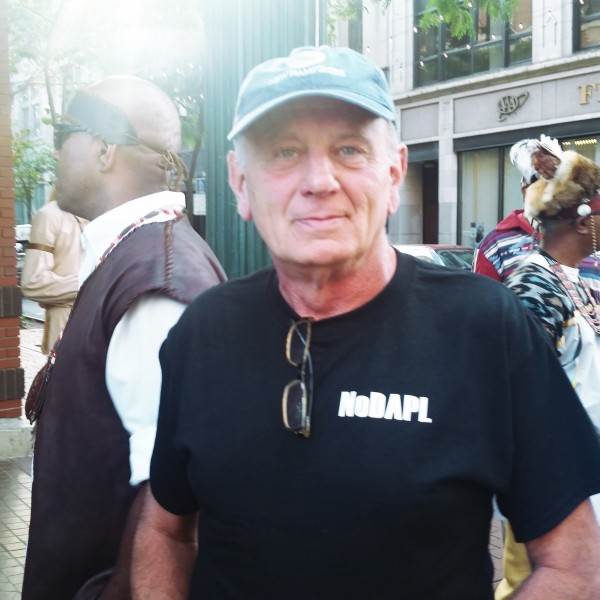

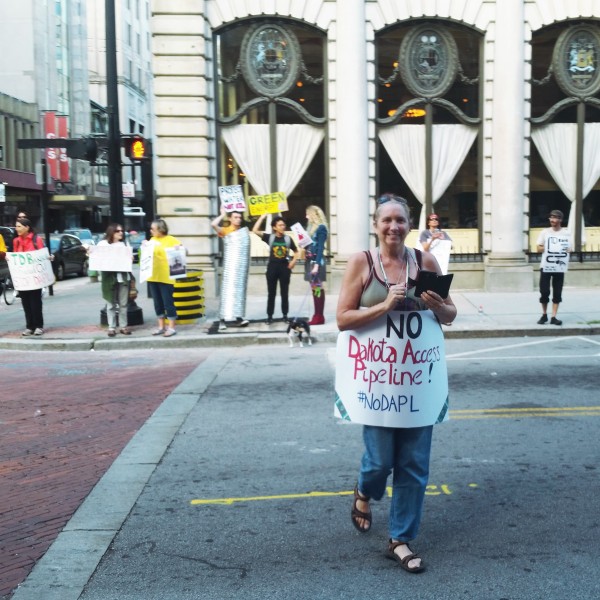
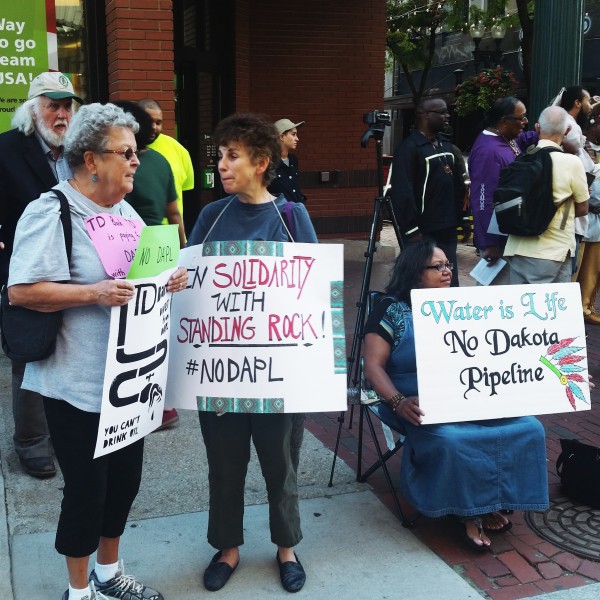
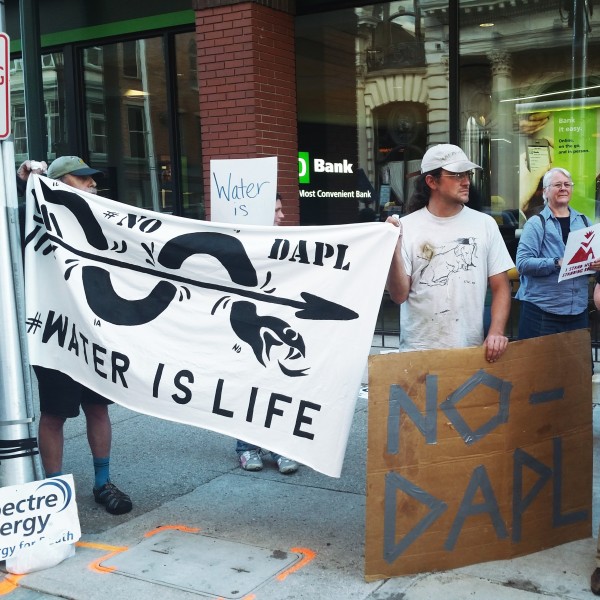
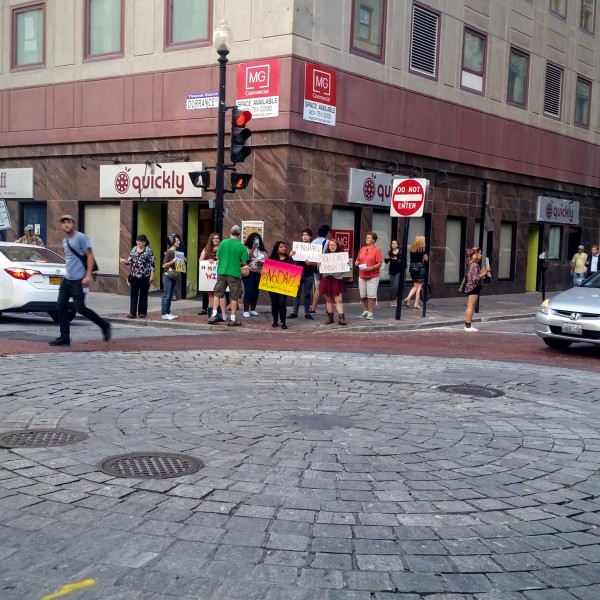
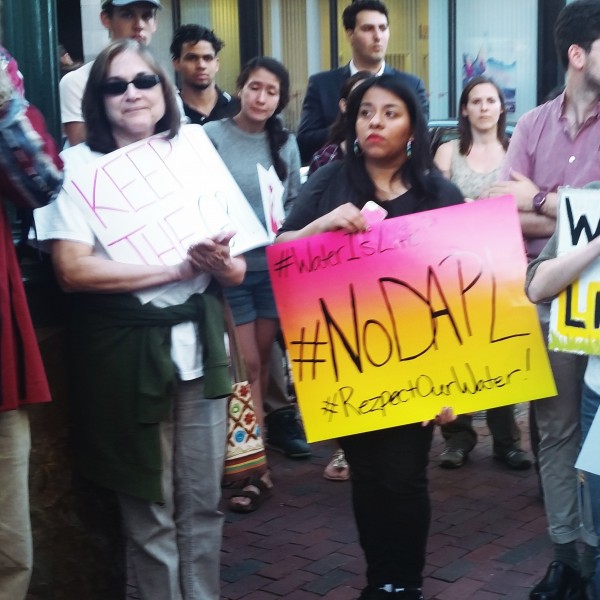
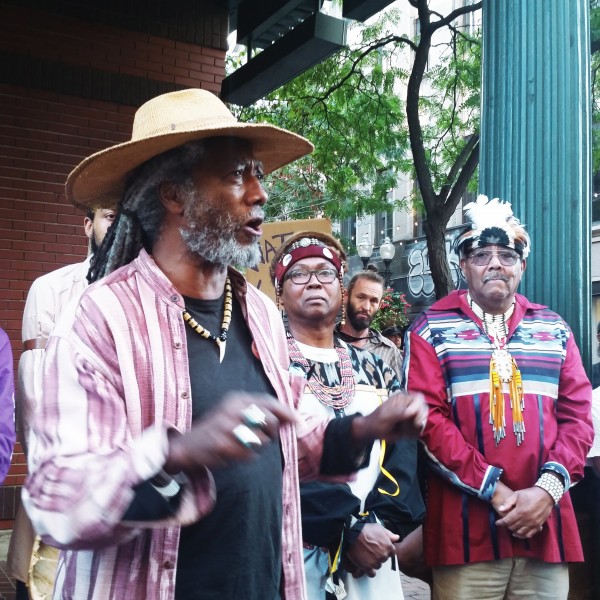
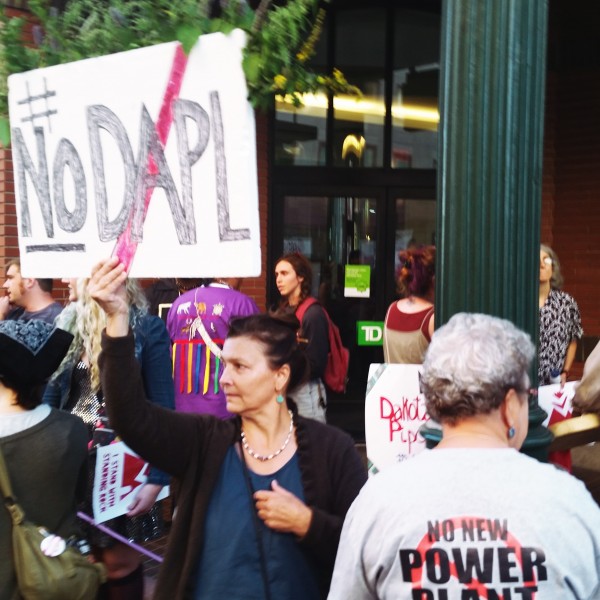
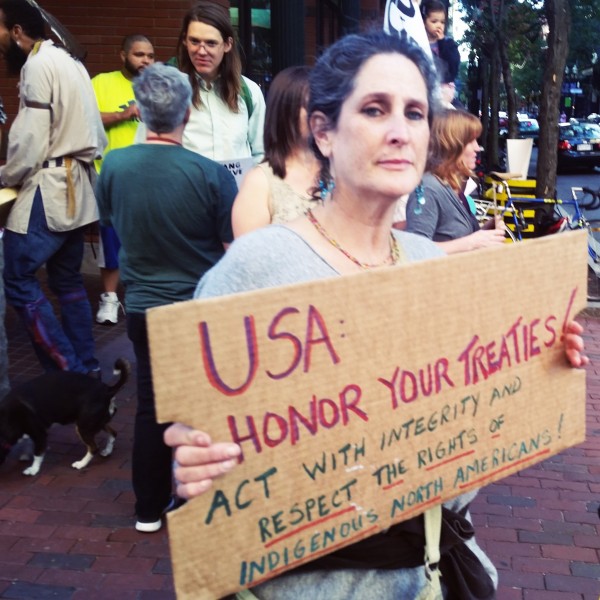
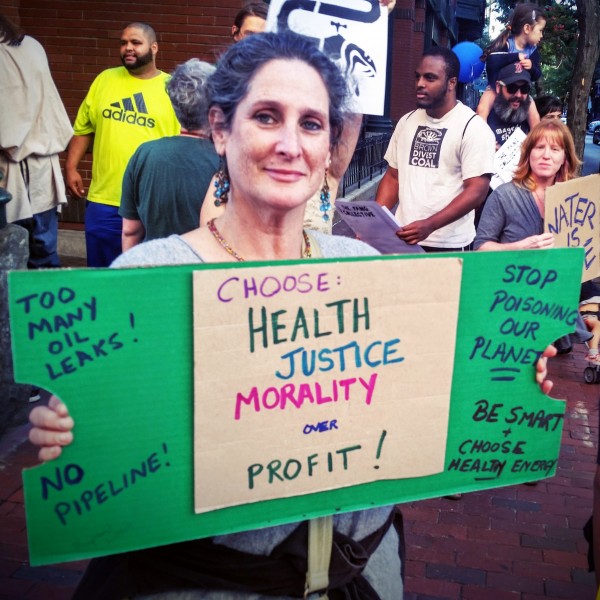
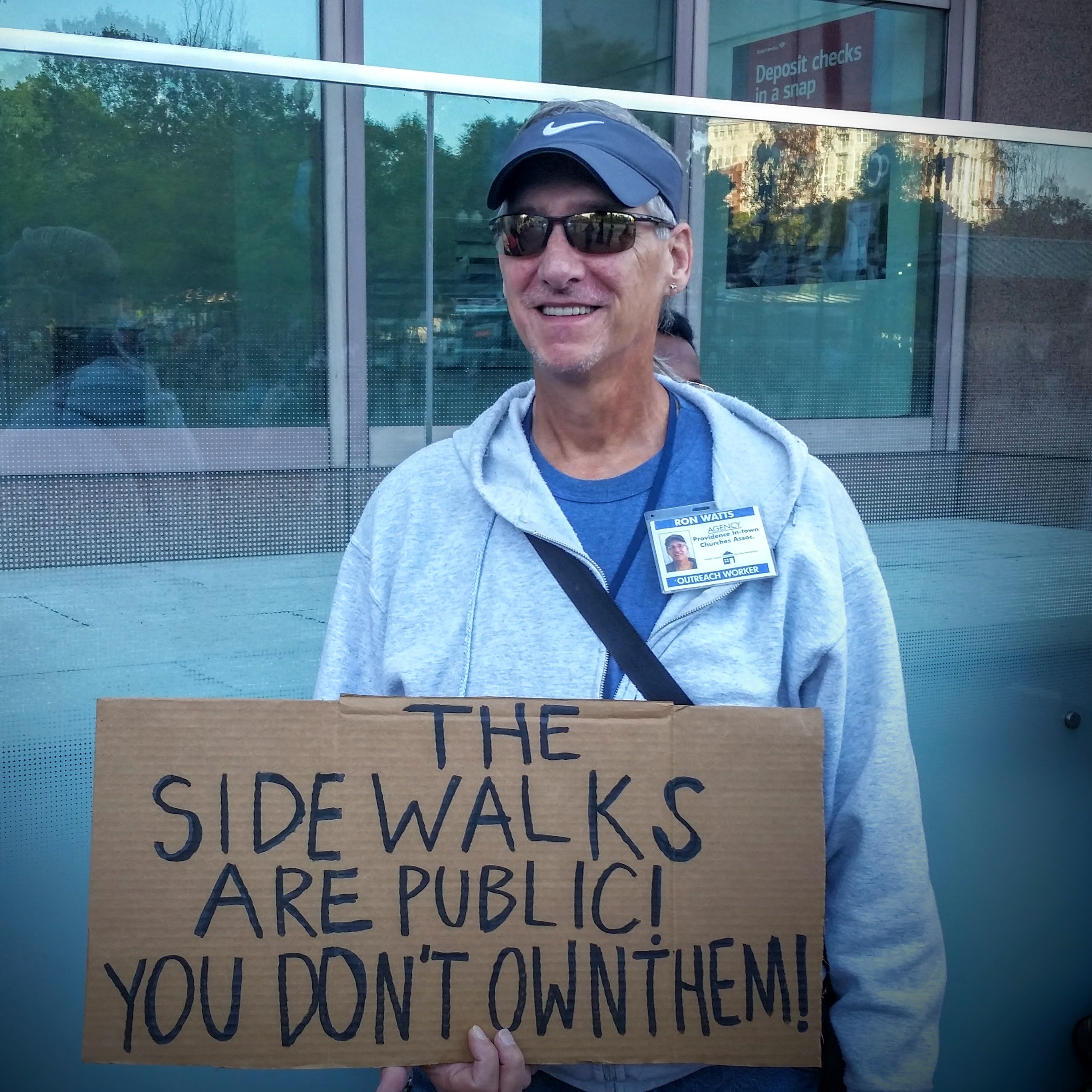
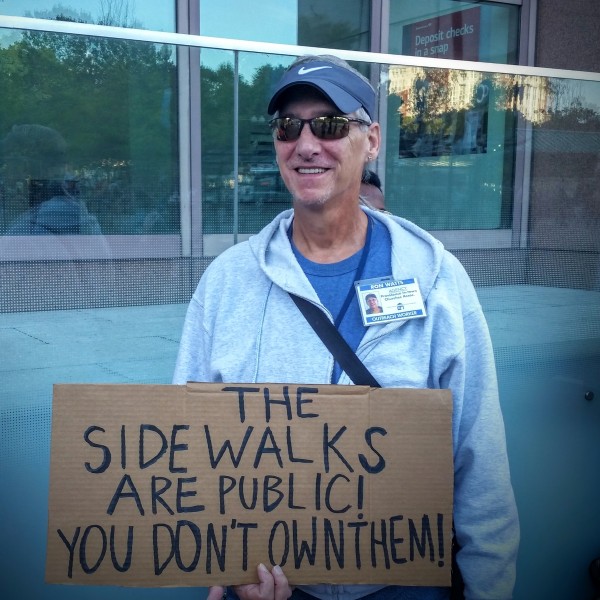

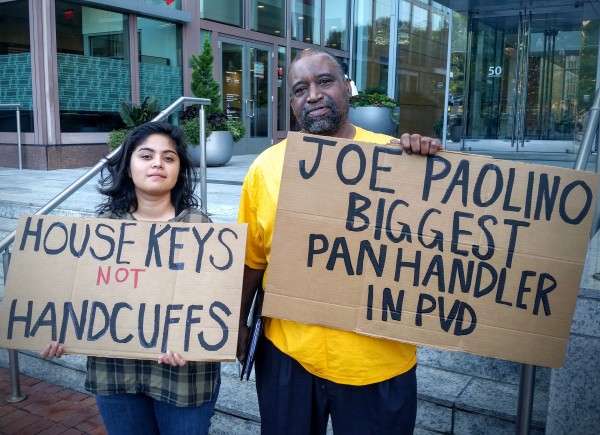
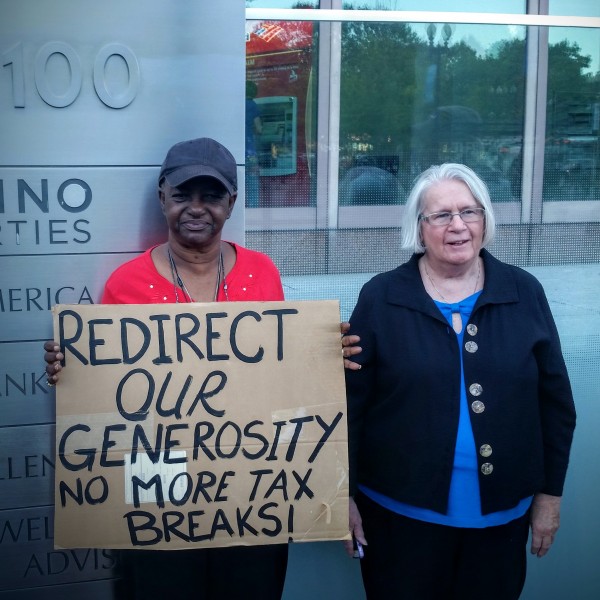
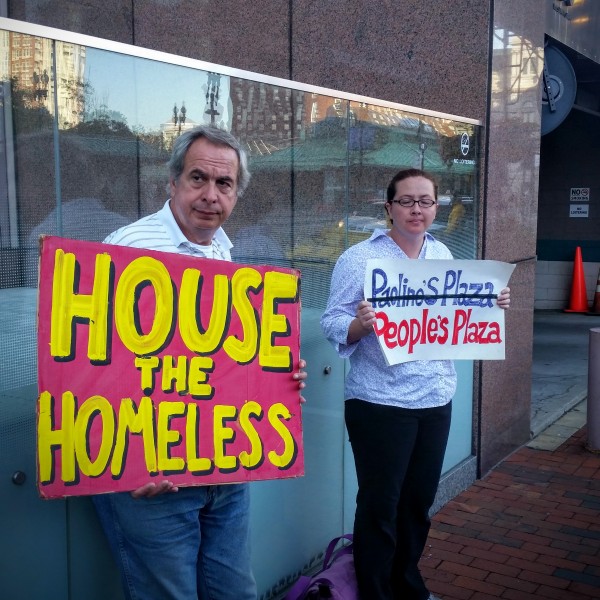
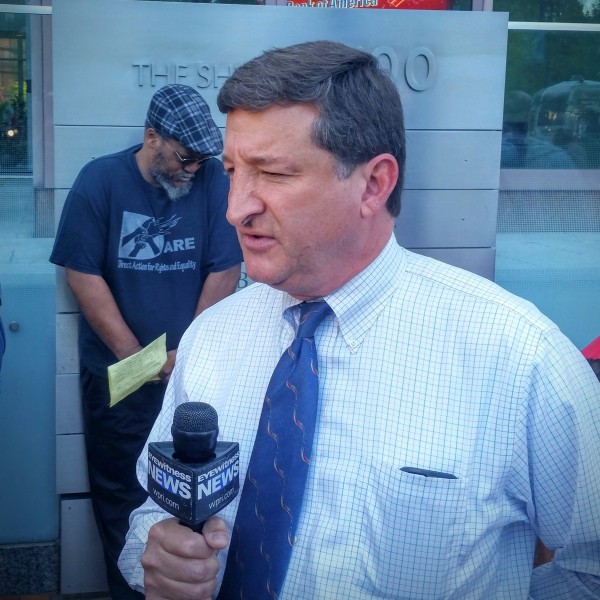
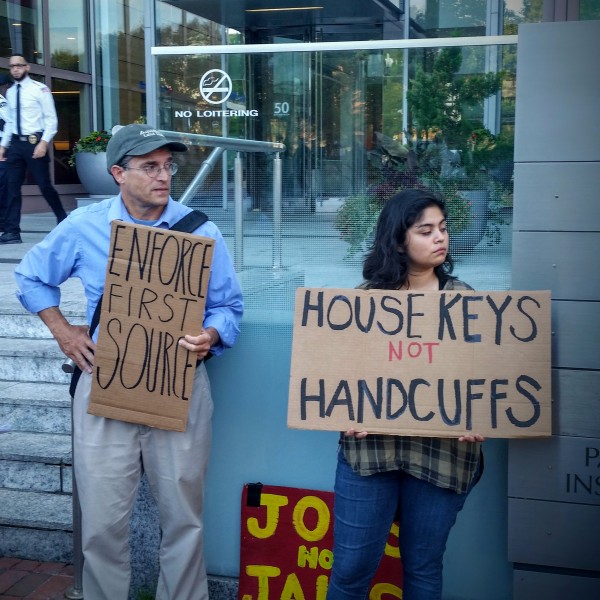
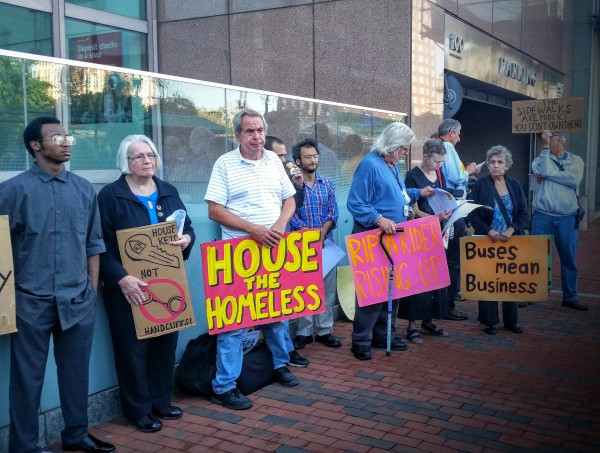
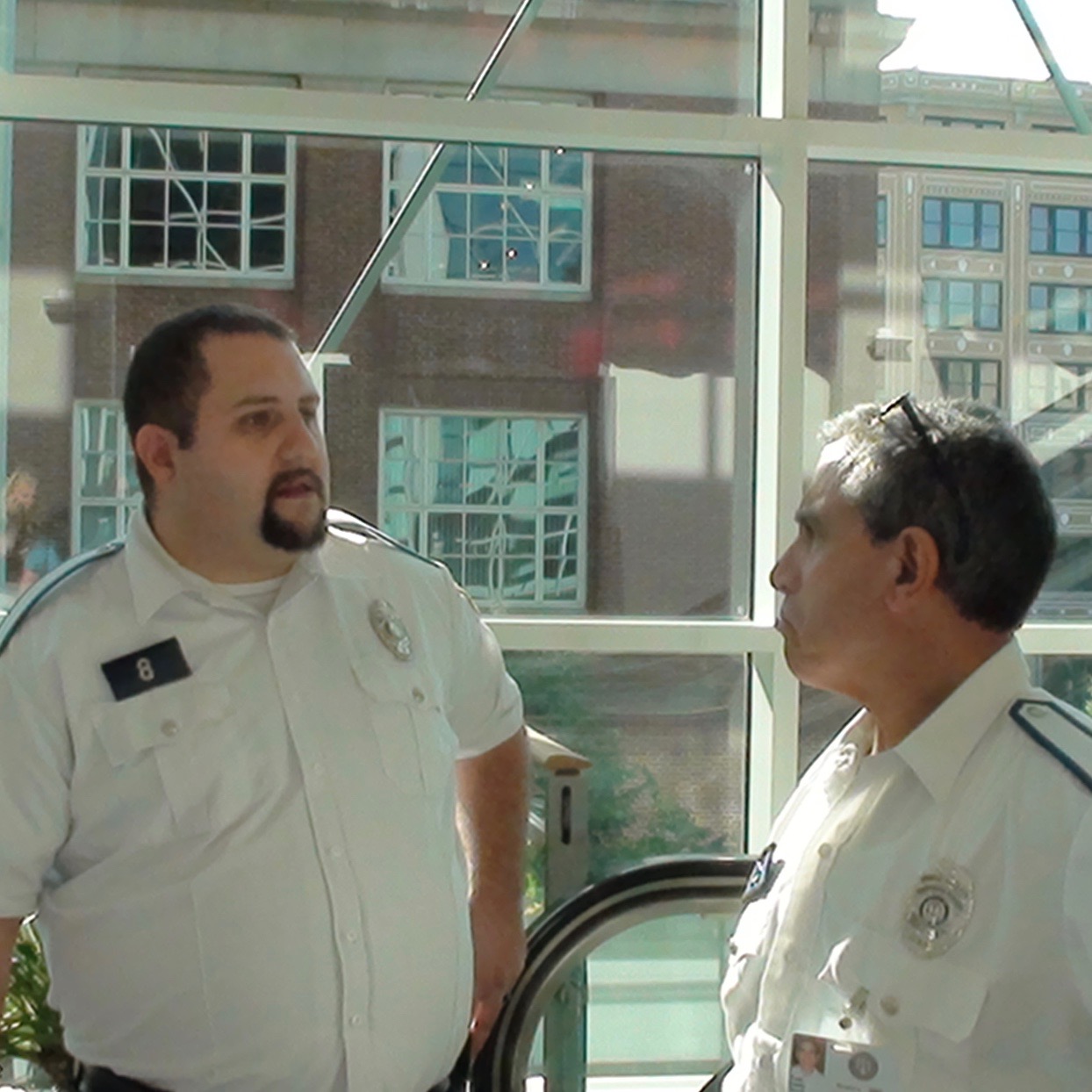
 On Wednesday morning, reporters and activists were prevented from attending real estate developer Joseph Paolino’s press conference where he was to announce his plans regarding the issue of homelessness. The behavior of the security guards and police officers at the Providence Convention Center, where the press conference was held, became a preview of what many fear might become the norm if the wrong policies are instituted in downtown Providence.
On Wednesday morning, reporters and activists were prevented from attending real estate developer Joseph Paolino’s press conference where he was to announce his plans regarding the issue of homelessness. The behavior of the security guards and police officers at the Providence Convention Center, where the press conference was held, became a preview of what many fear might become the norm if the wrong policies are instituted in downtown Providence.
 A march from Kennedy Plaza to the Providence Public Safety Complex, with a brief, tense stop in front of the Providence Place Mall was held in Providence Friday evening in solidarity with a
A march from Kennedy Plaza to the Providence Public Safety Complex, with a brief, tense stop in front of the Providence Place Mall was held in Providence Friday evening in solidarity with a 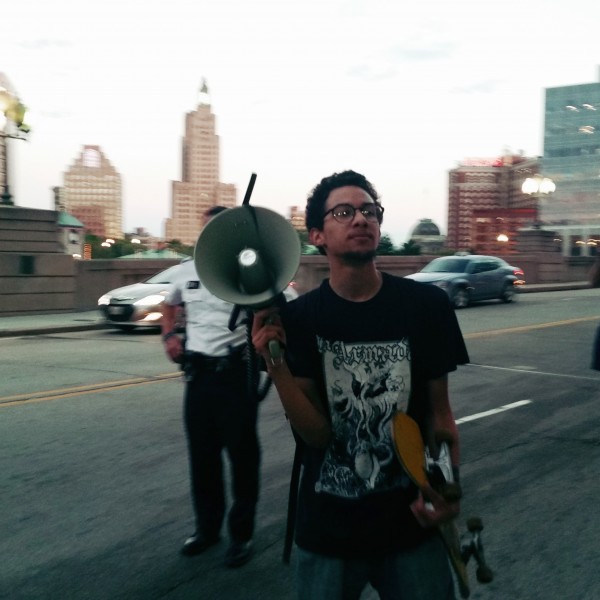 On my way back to Kennedy Plaza after the event Lt. Perez told me, half jokingly, that “those kids kind of hurt my feelings.”
On my way back to Kennedy Plaza after the event Lt. Perez told me, half jokingly, that “those kids kind of hurt my feelings.”